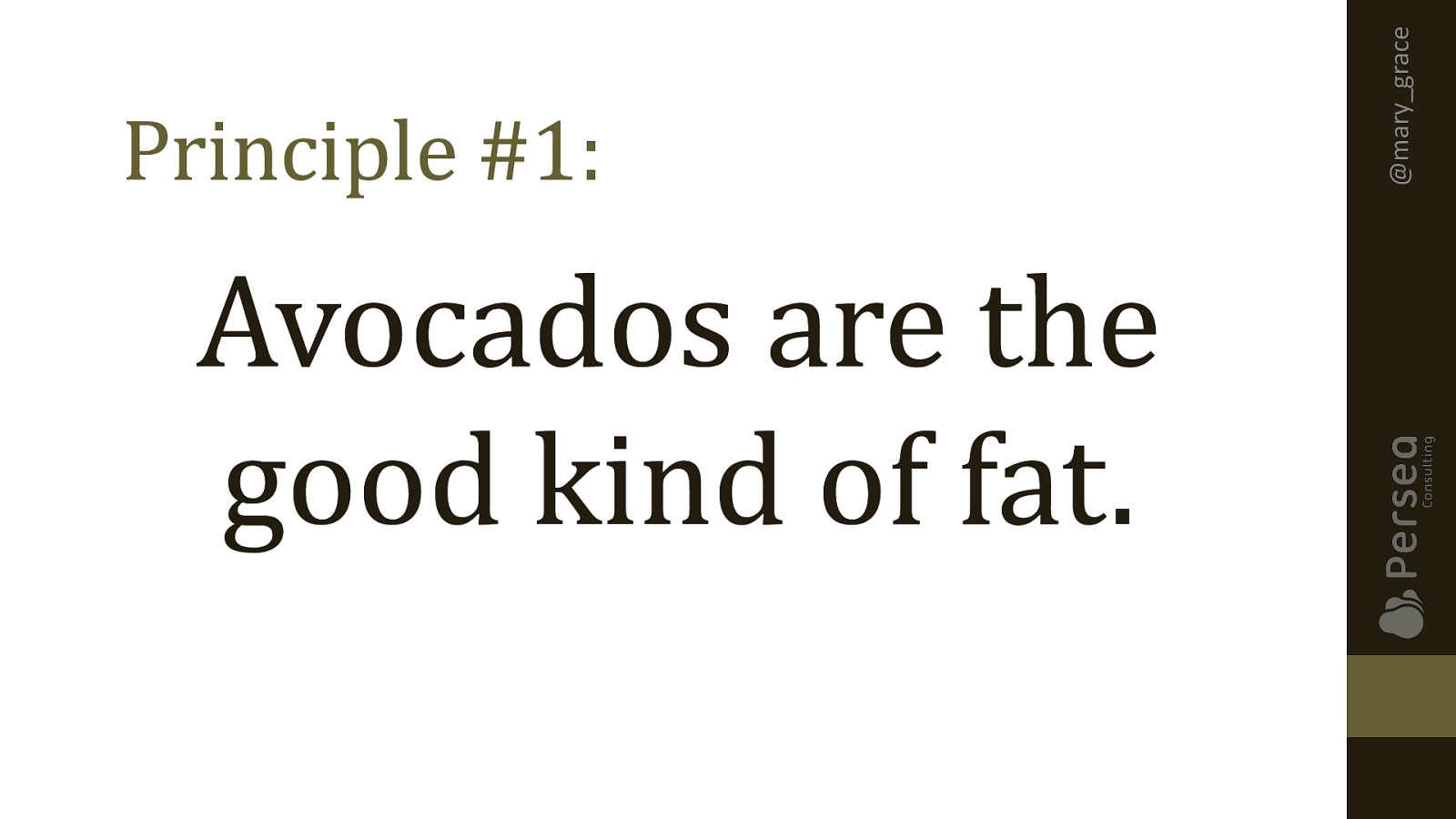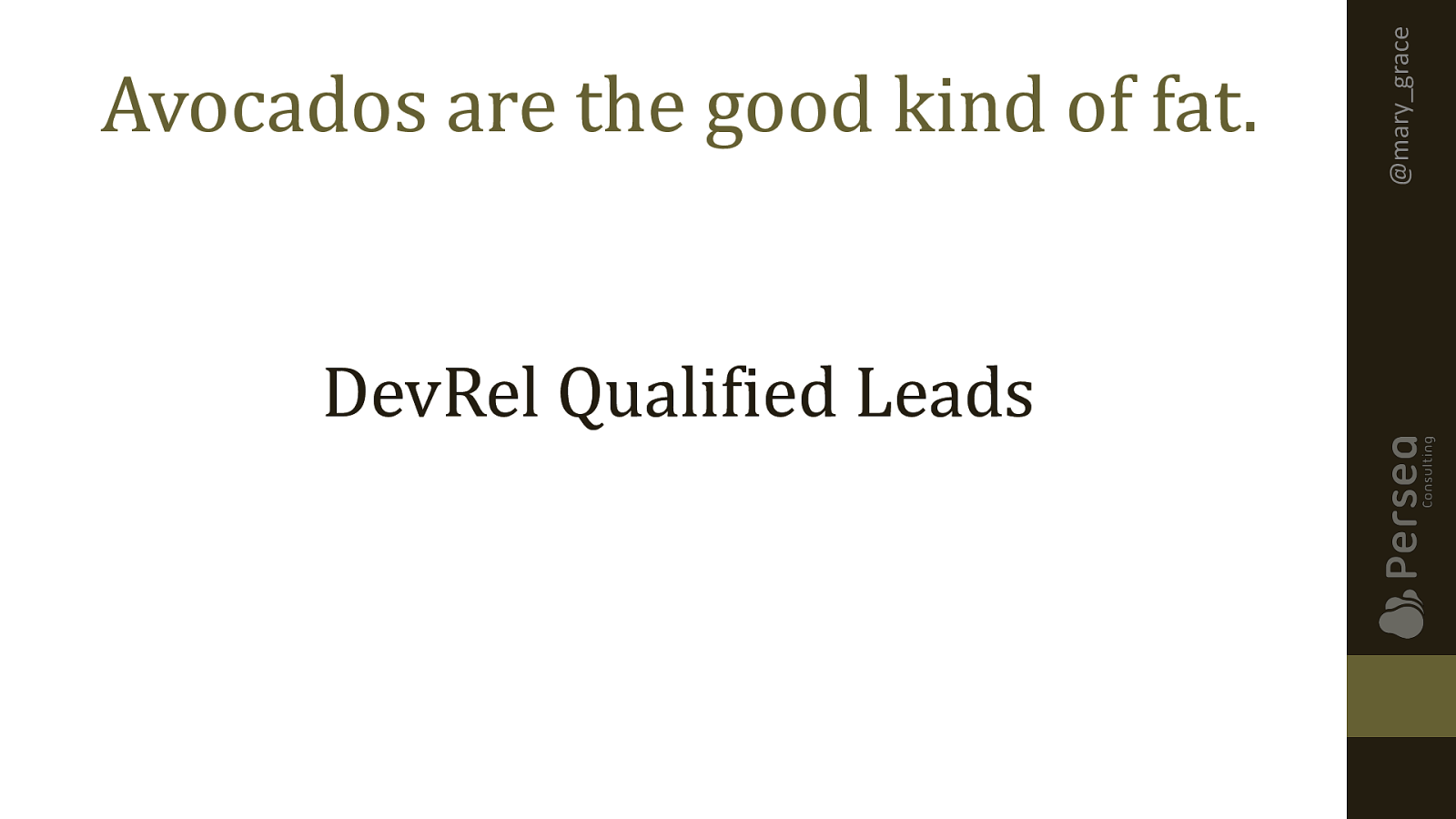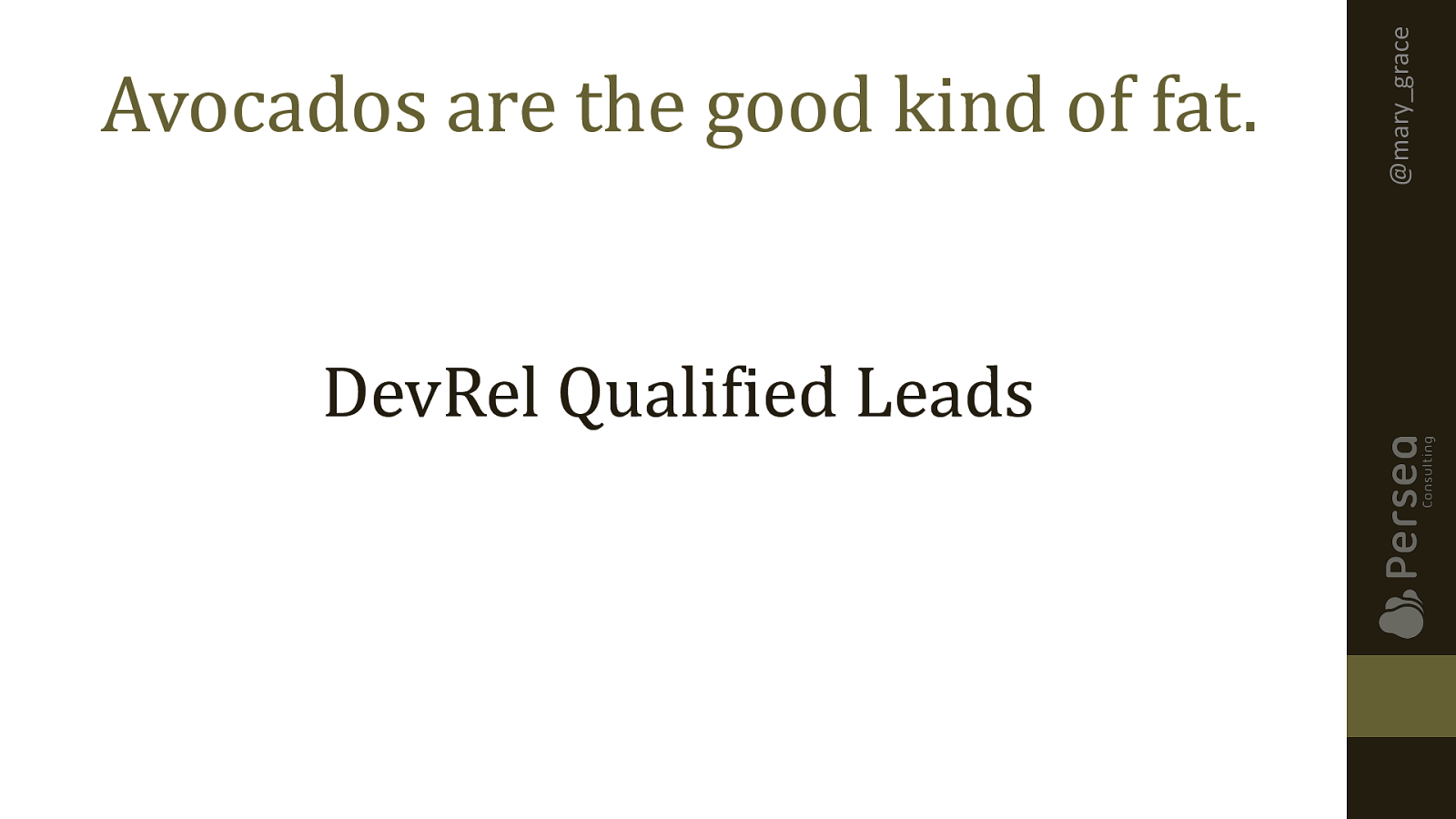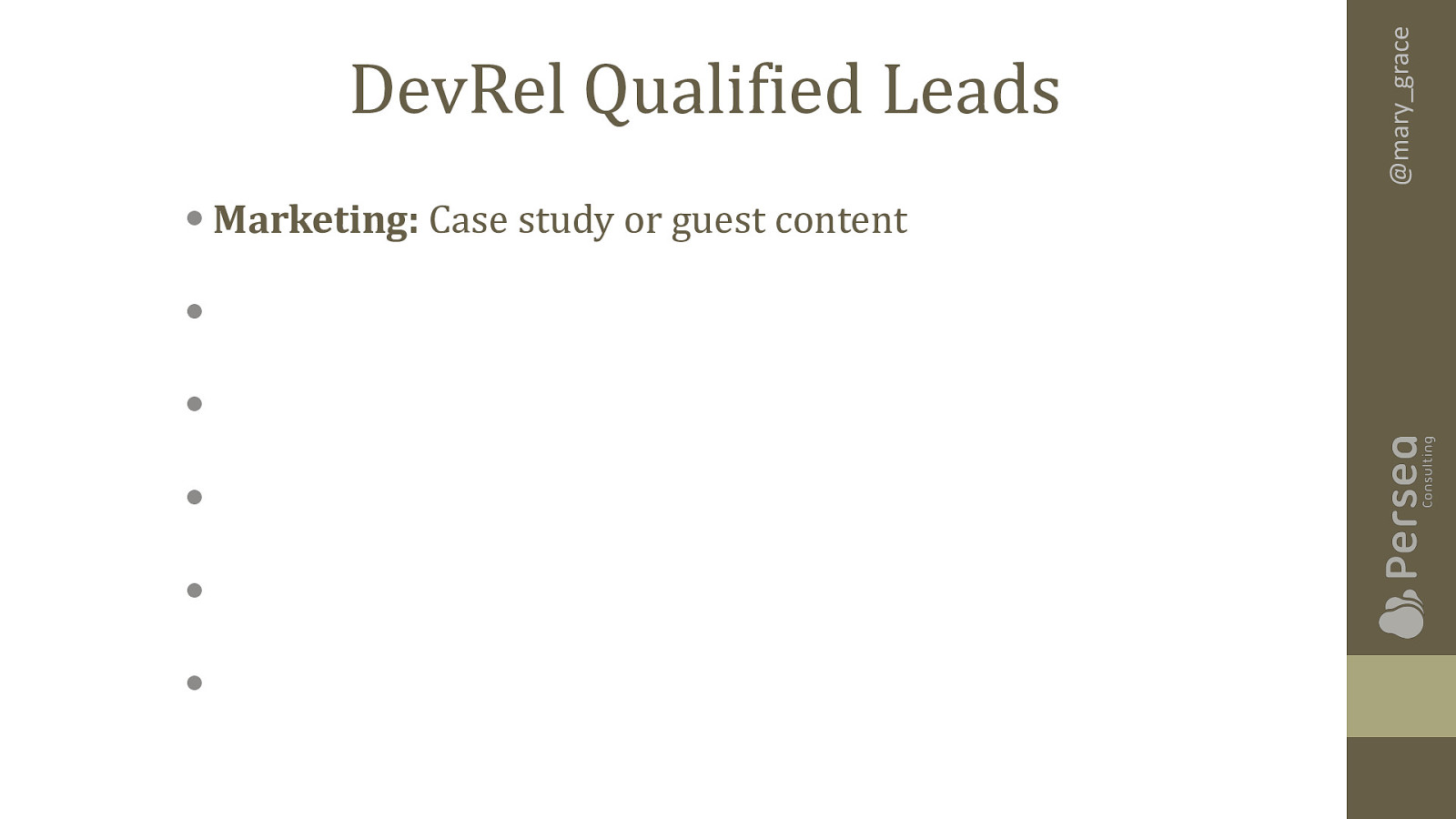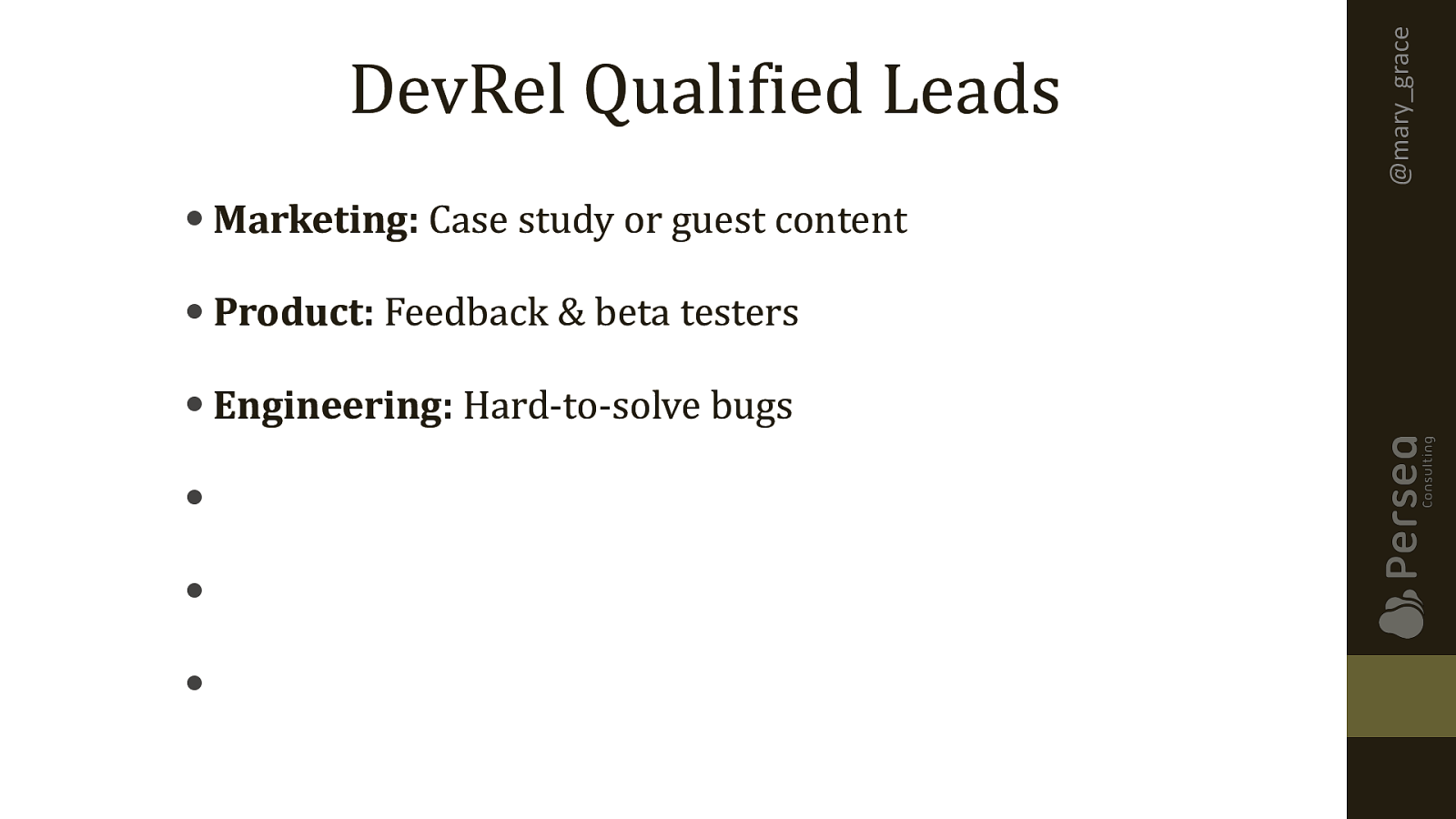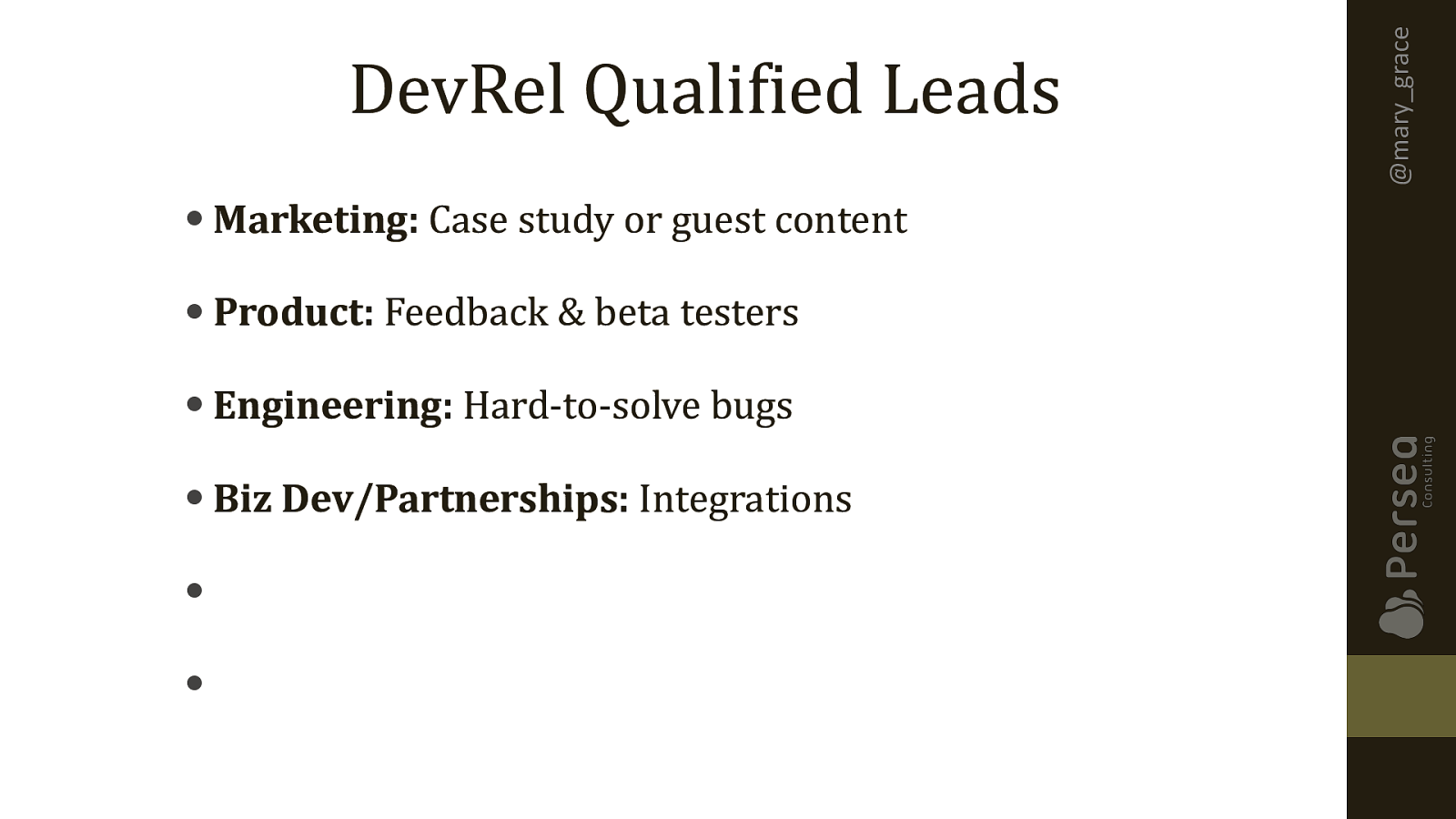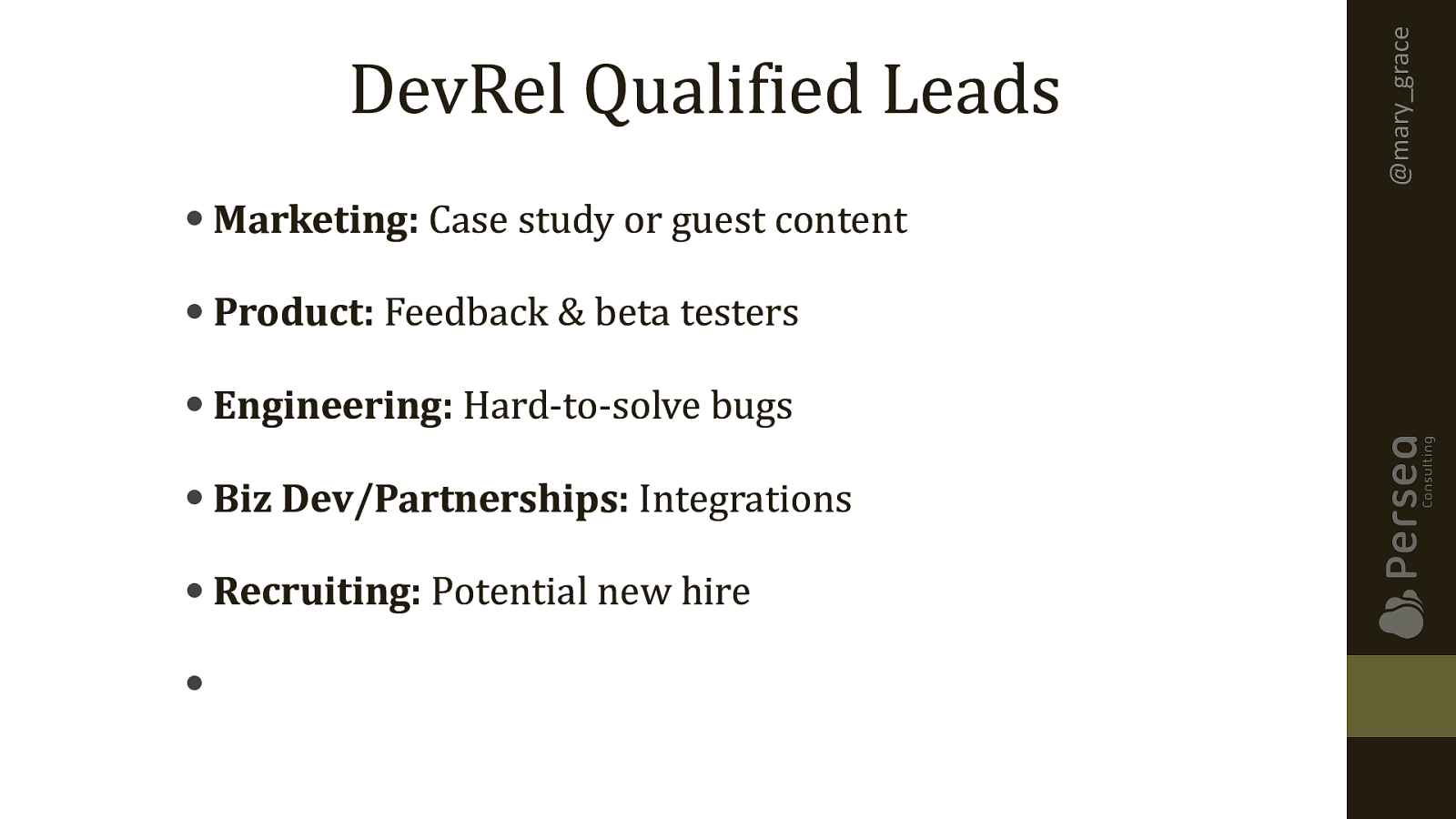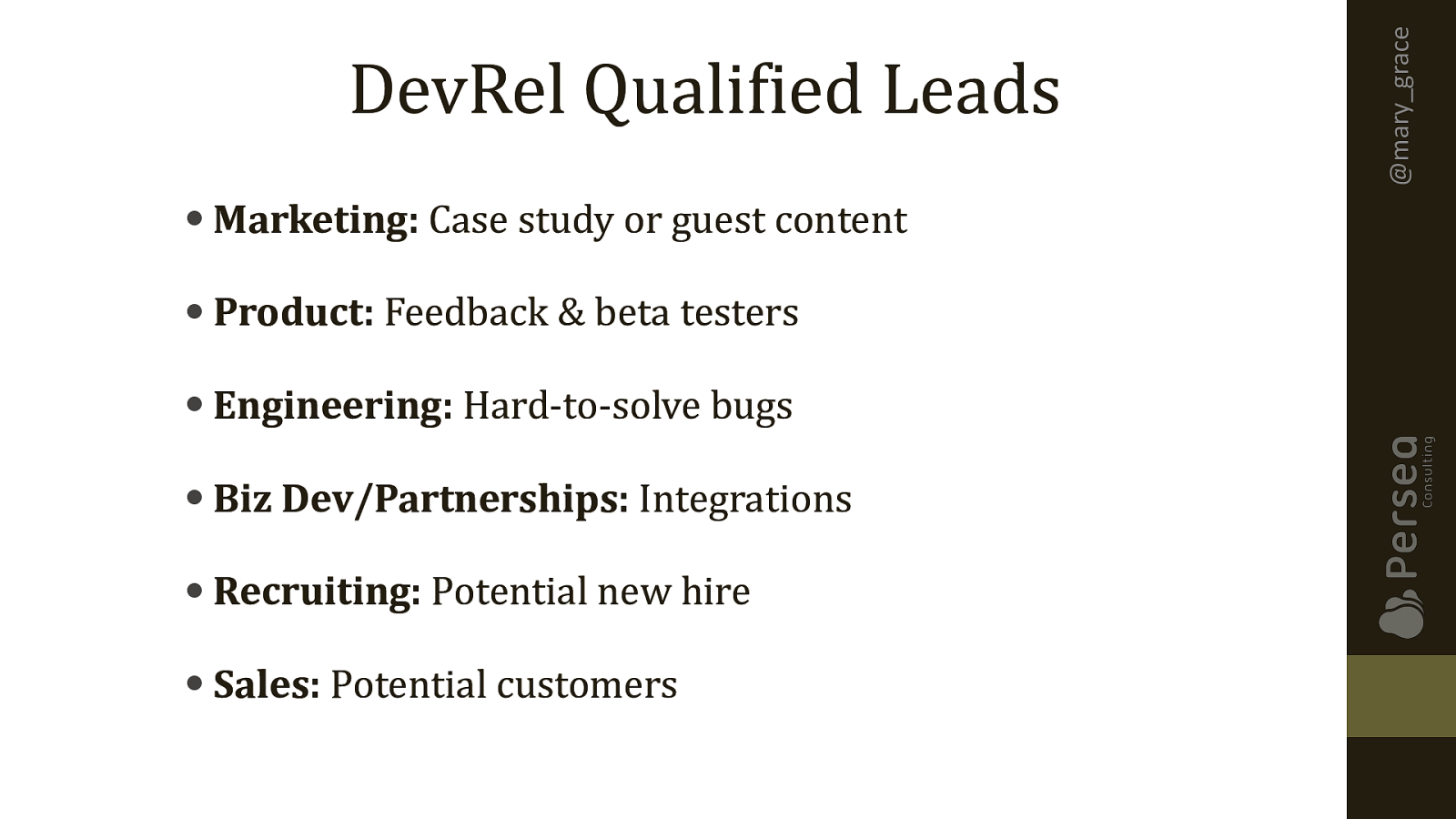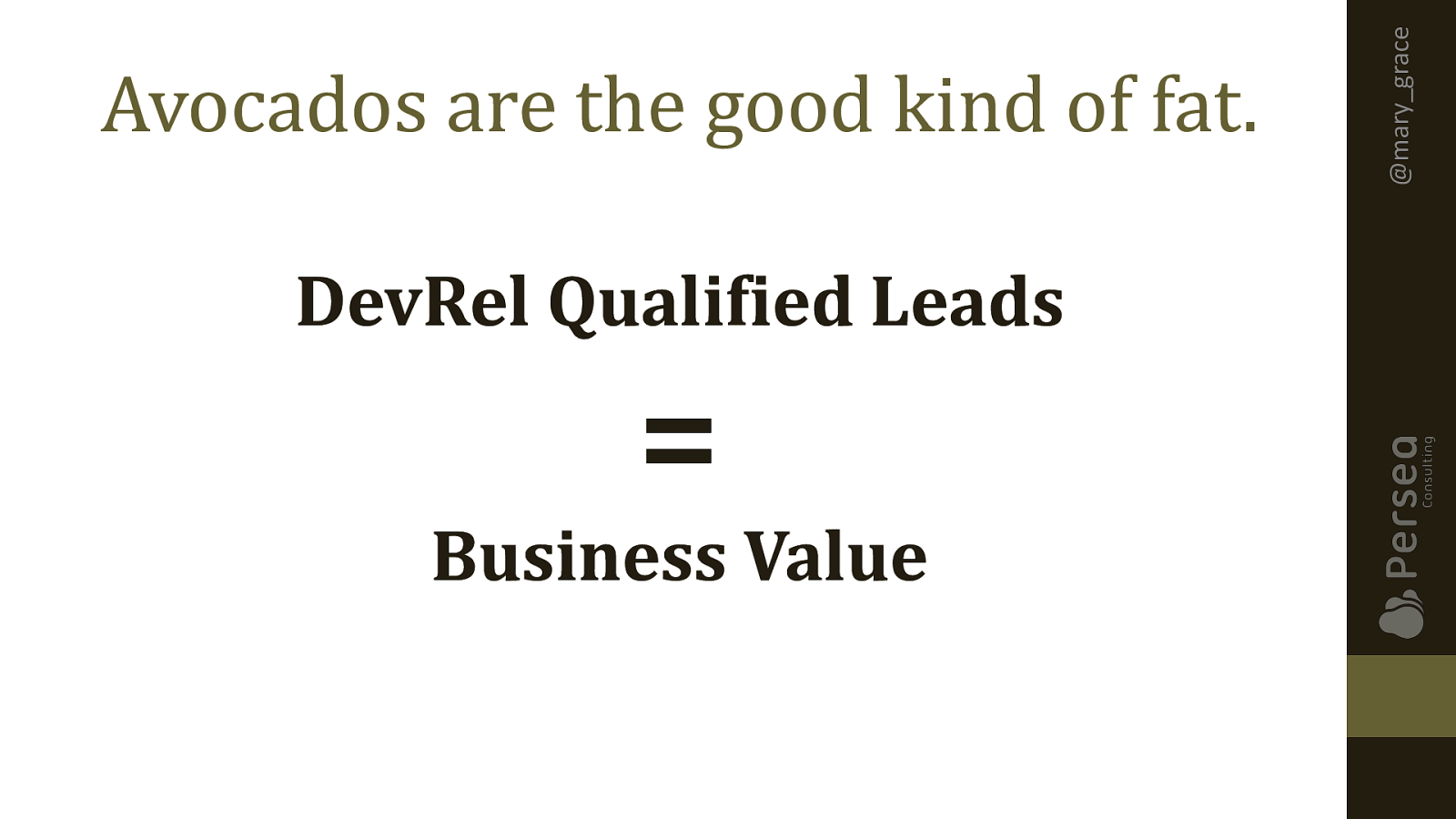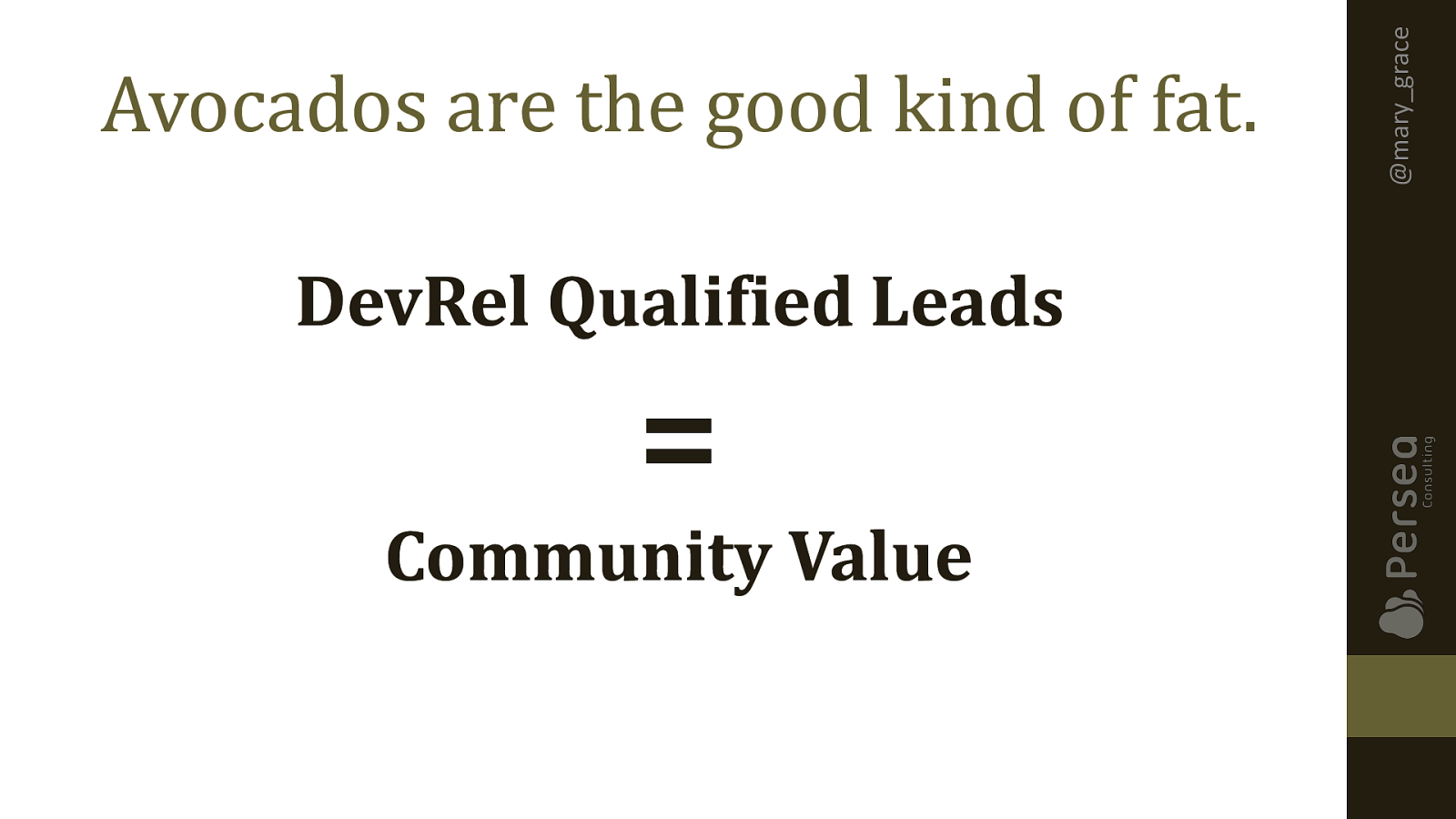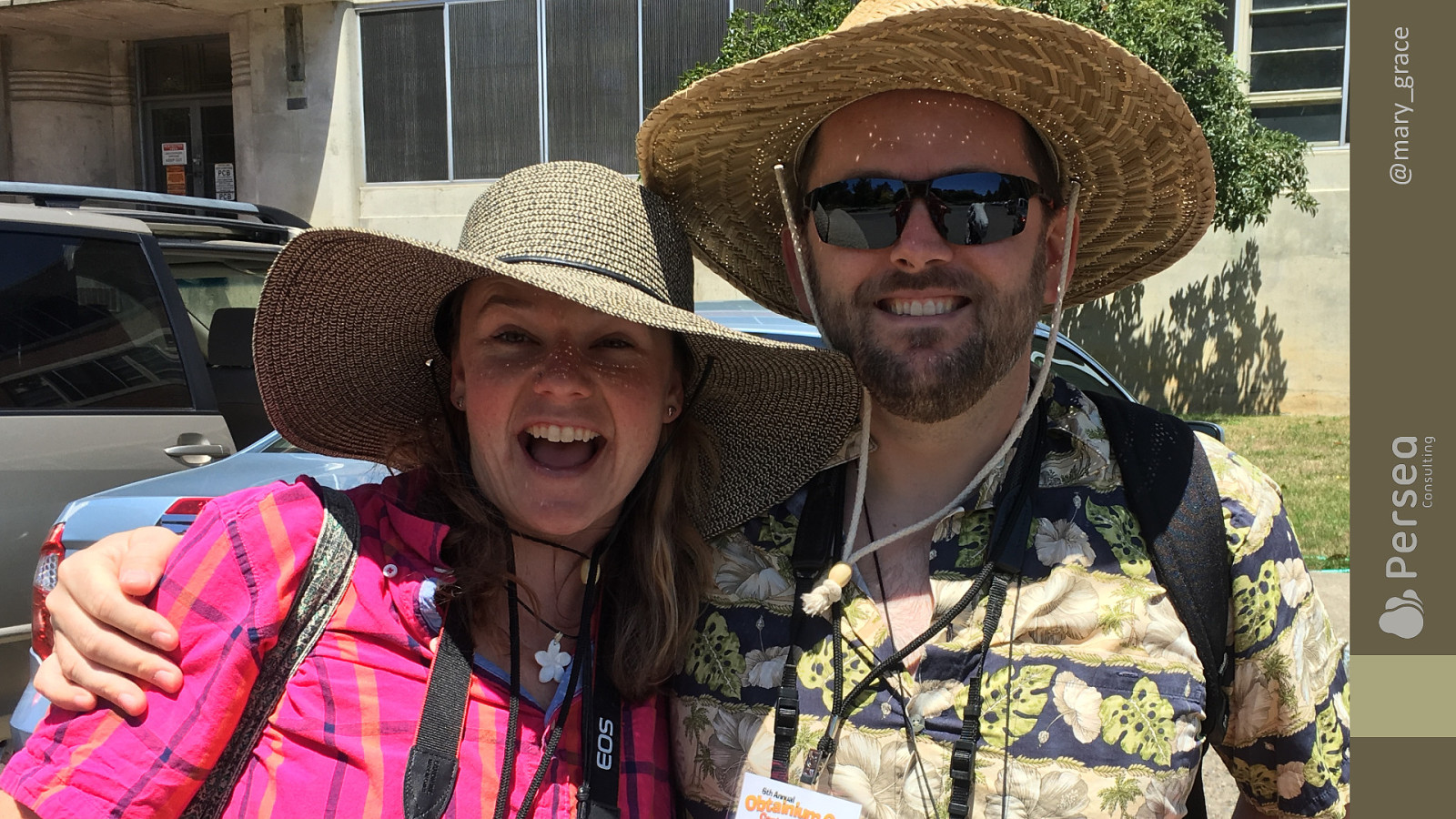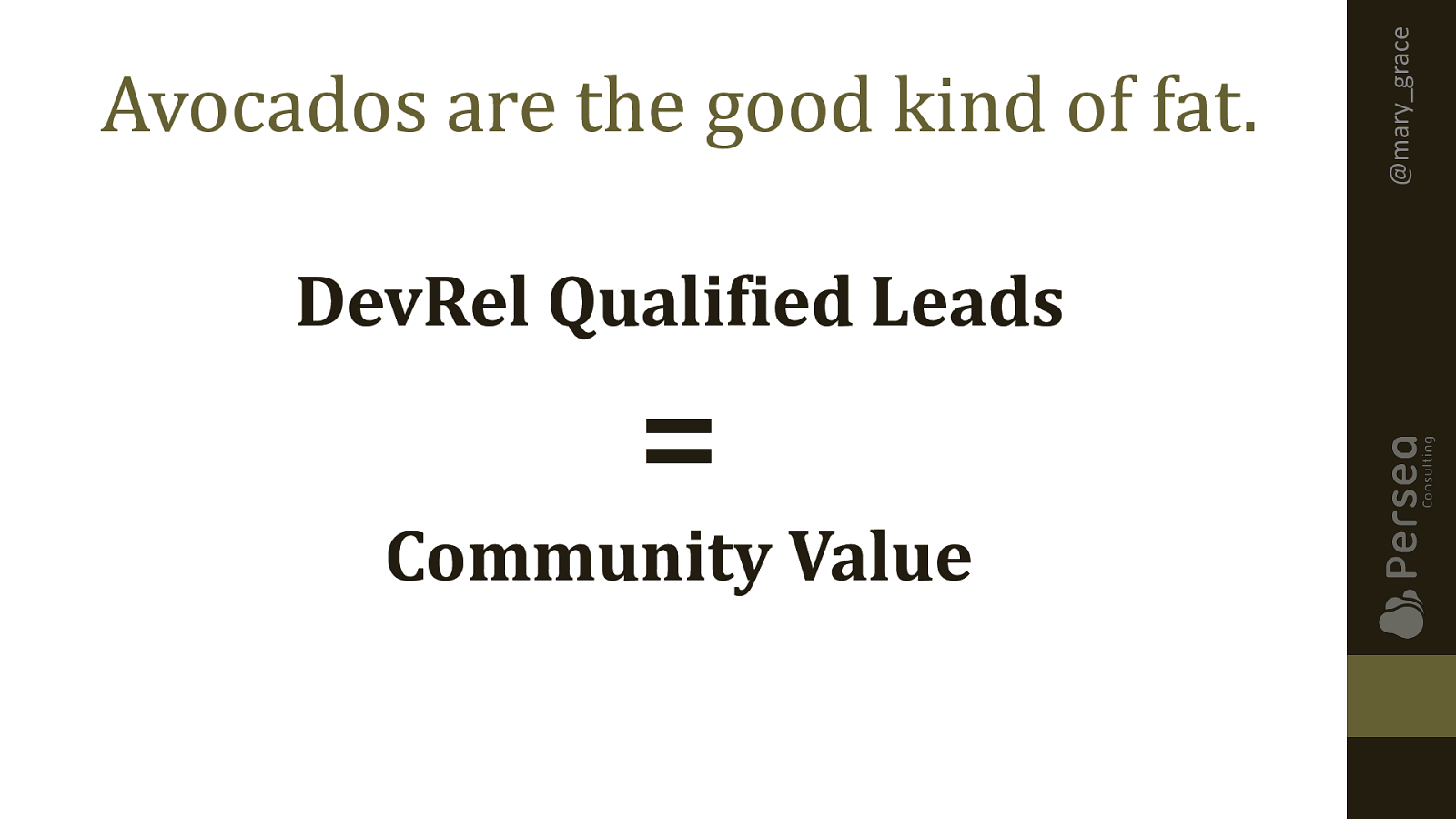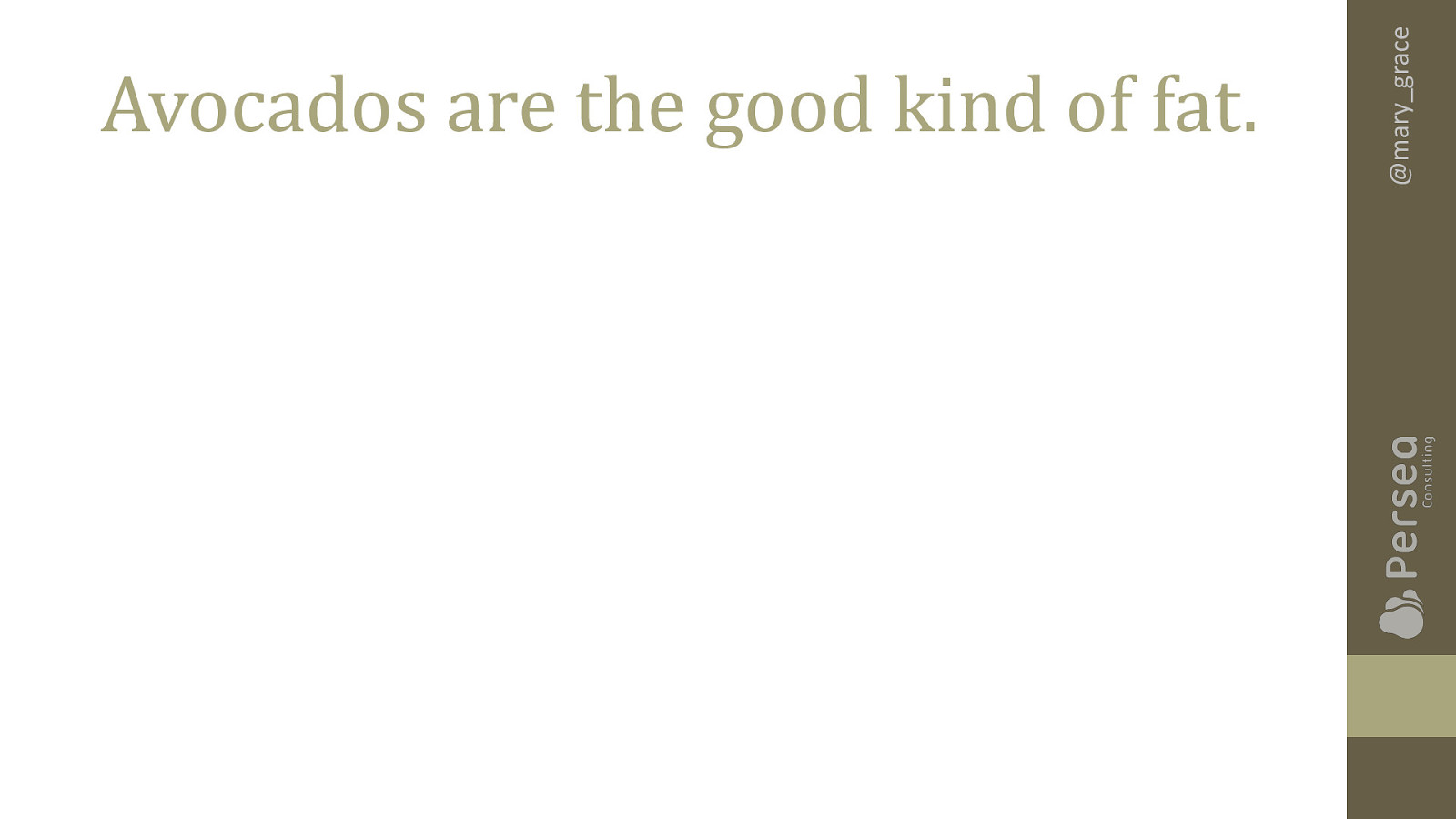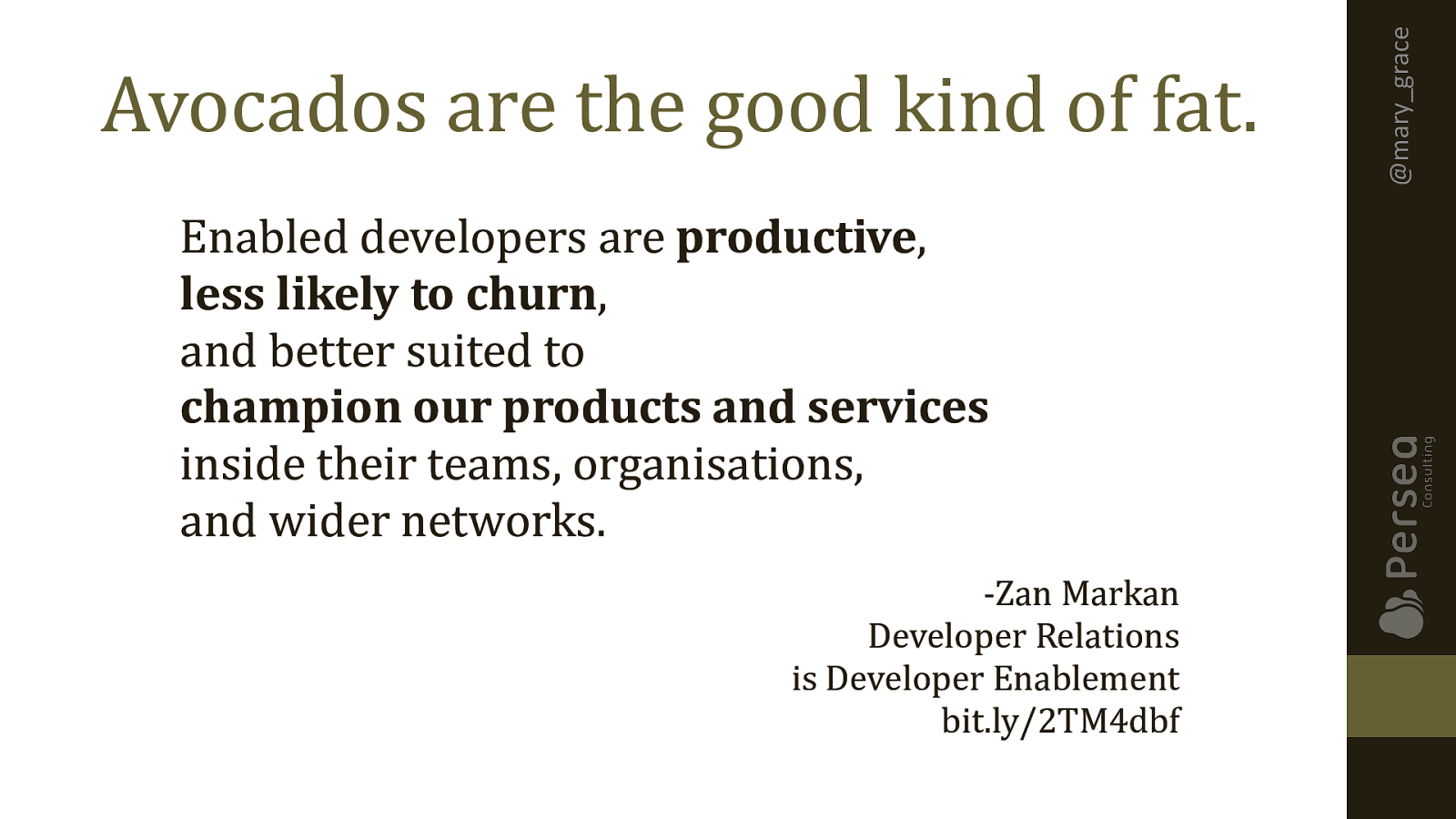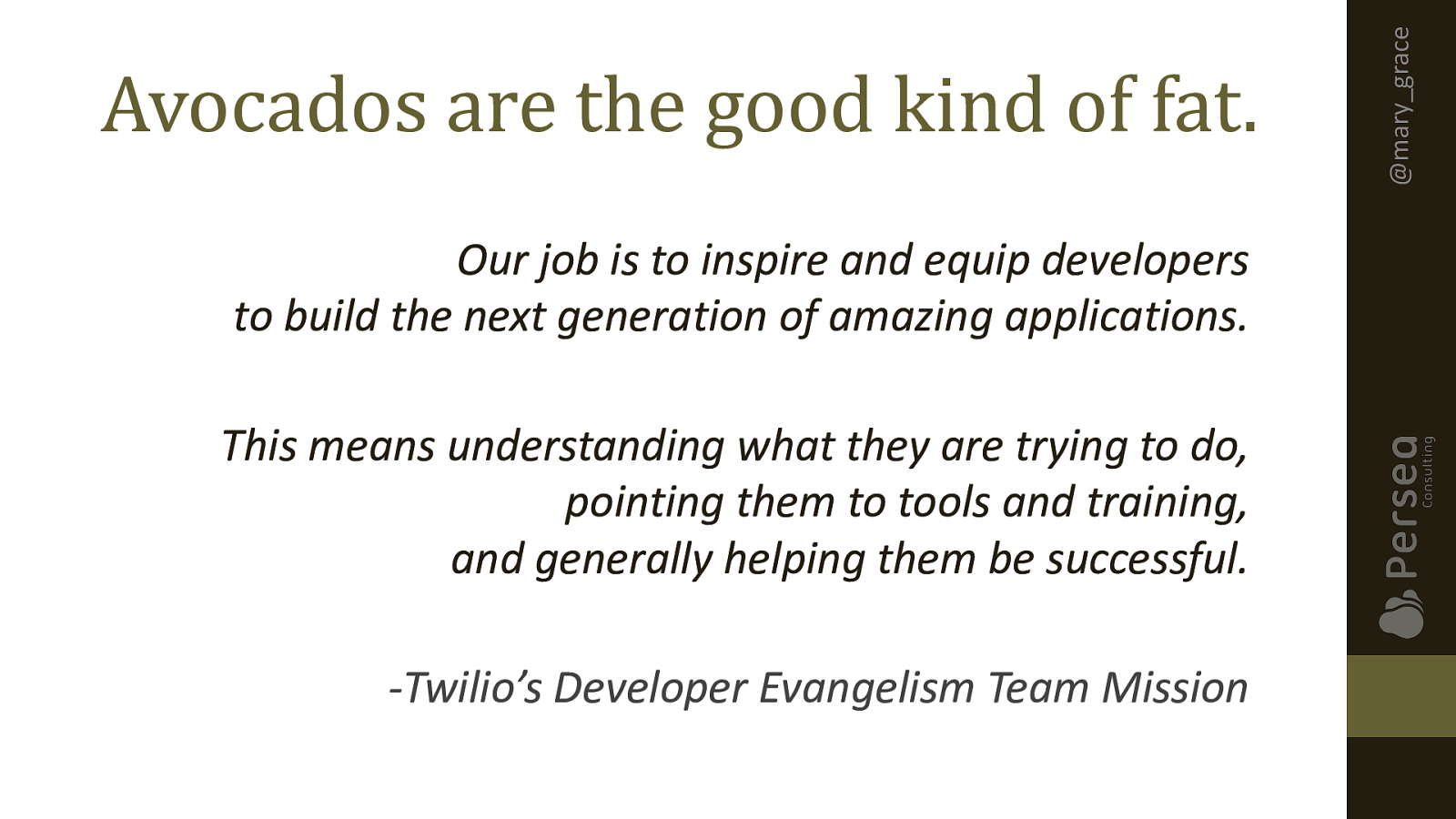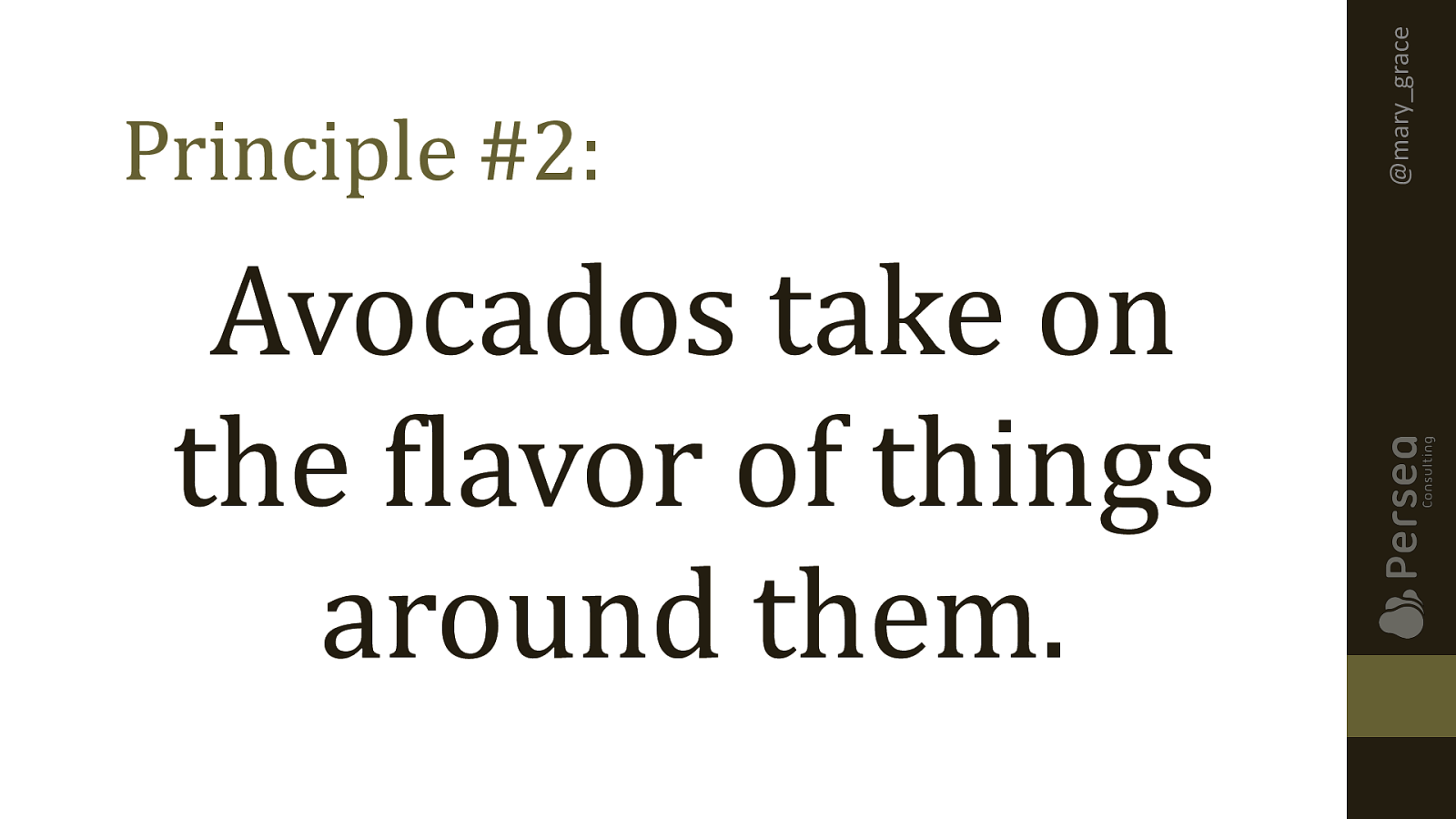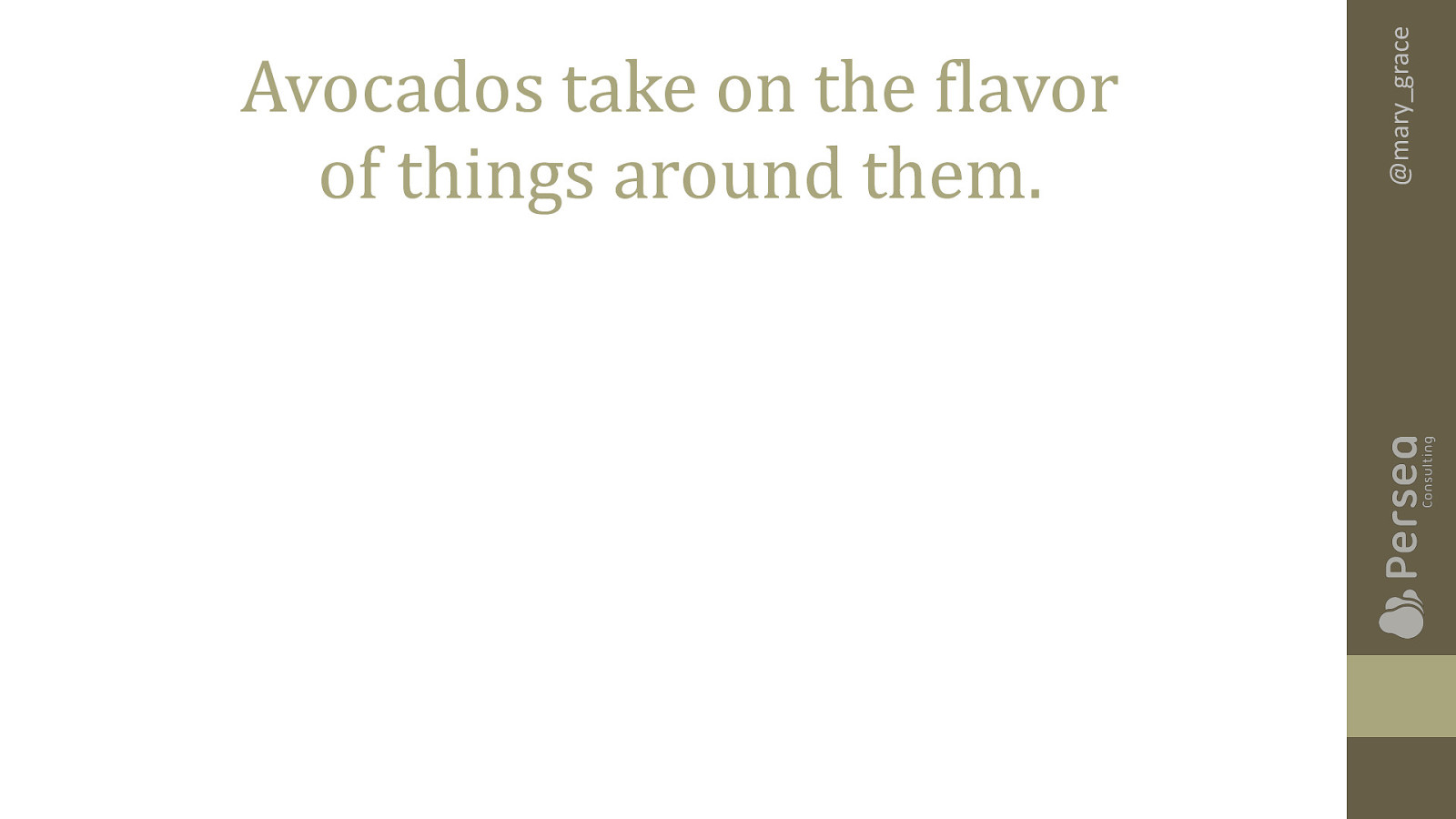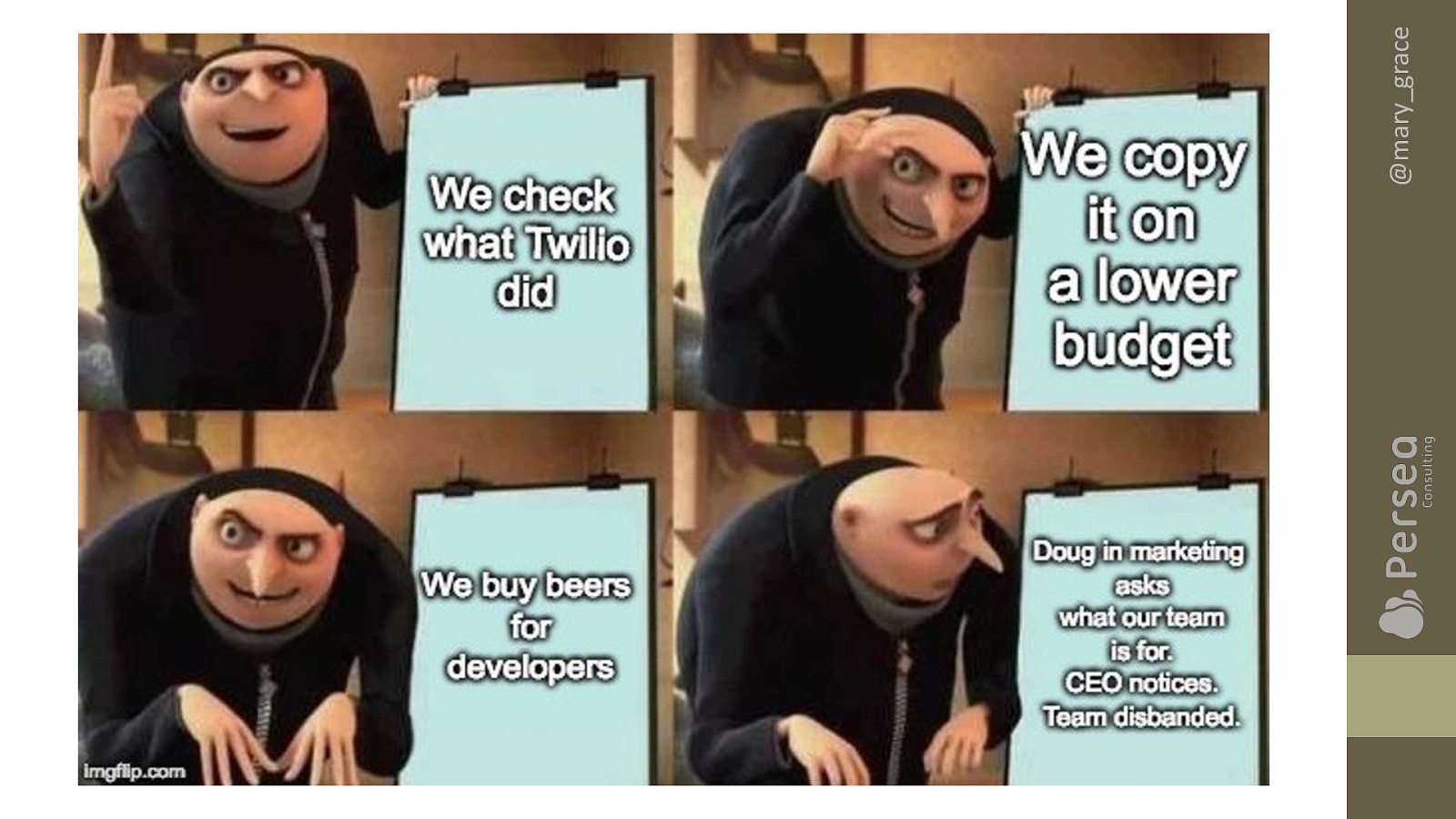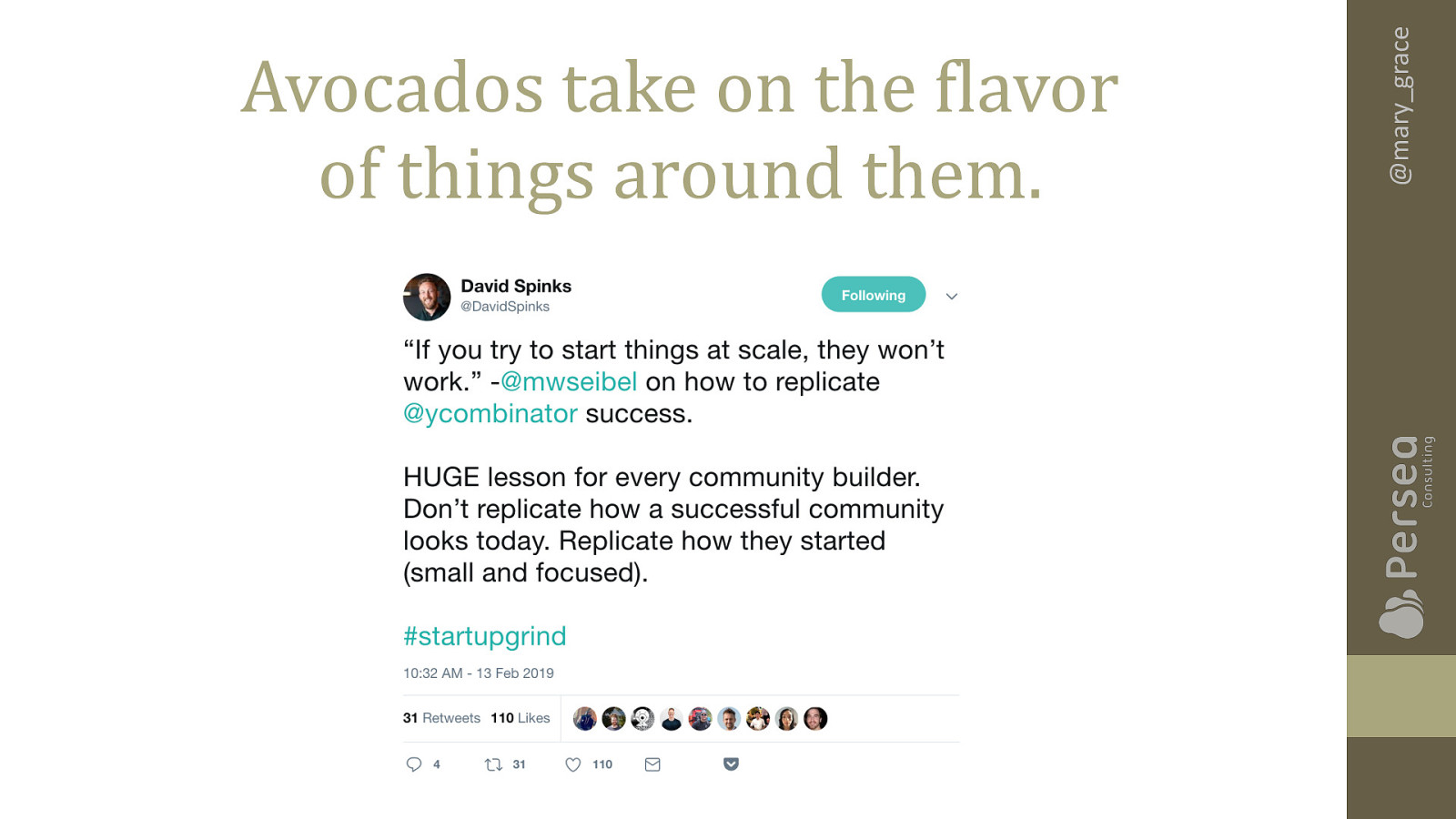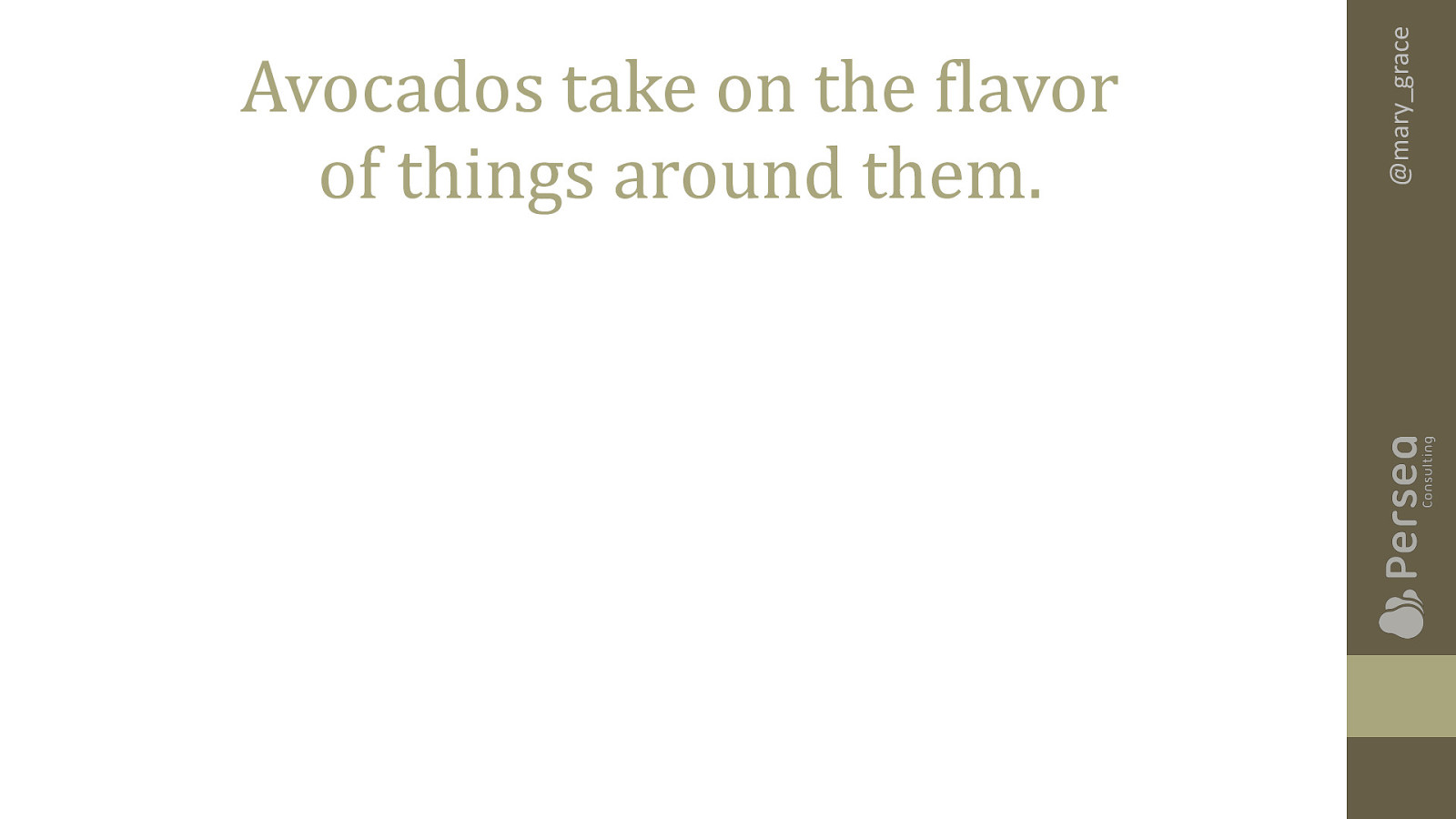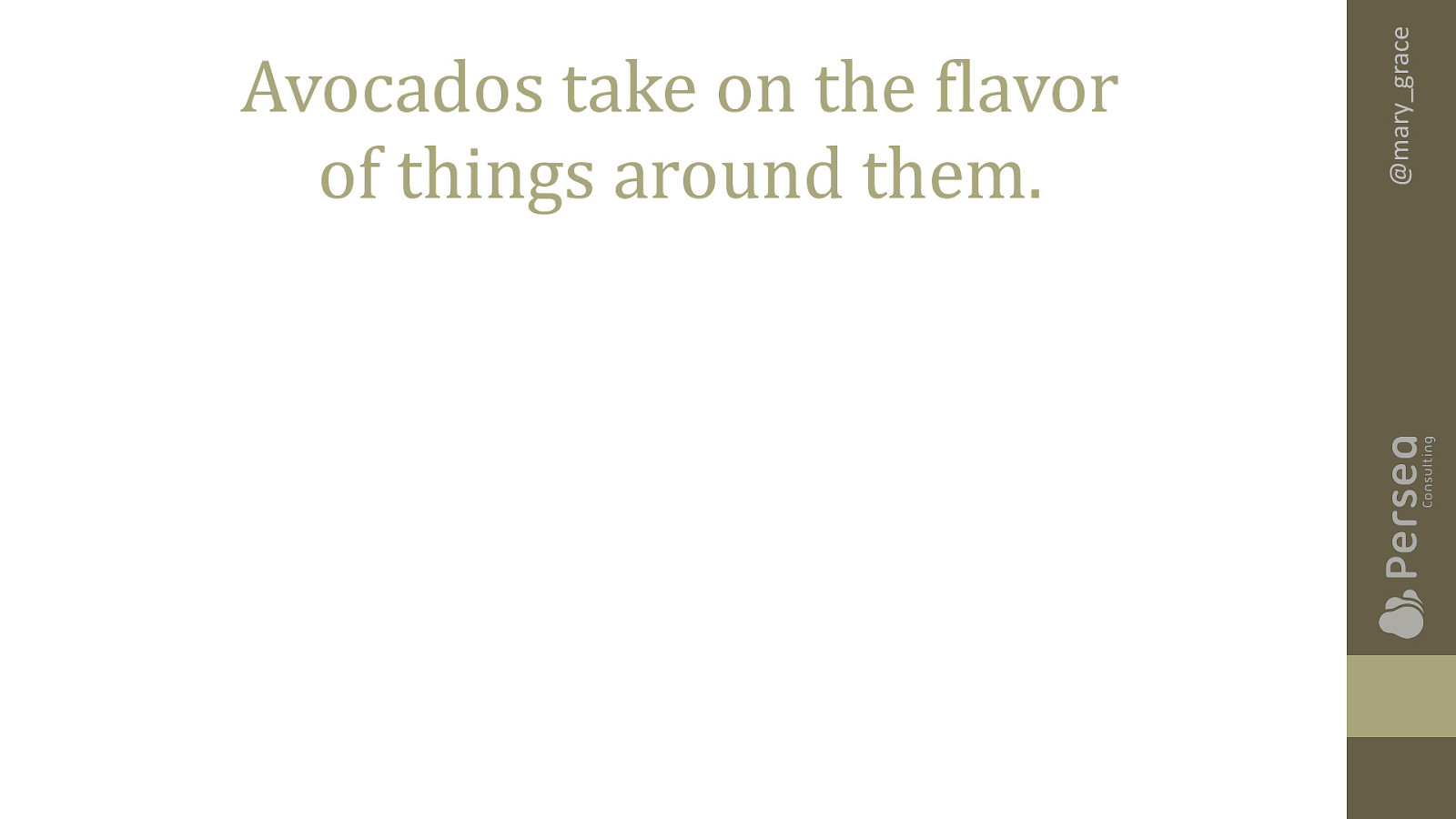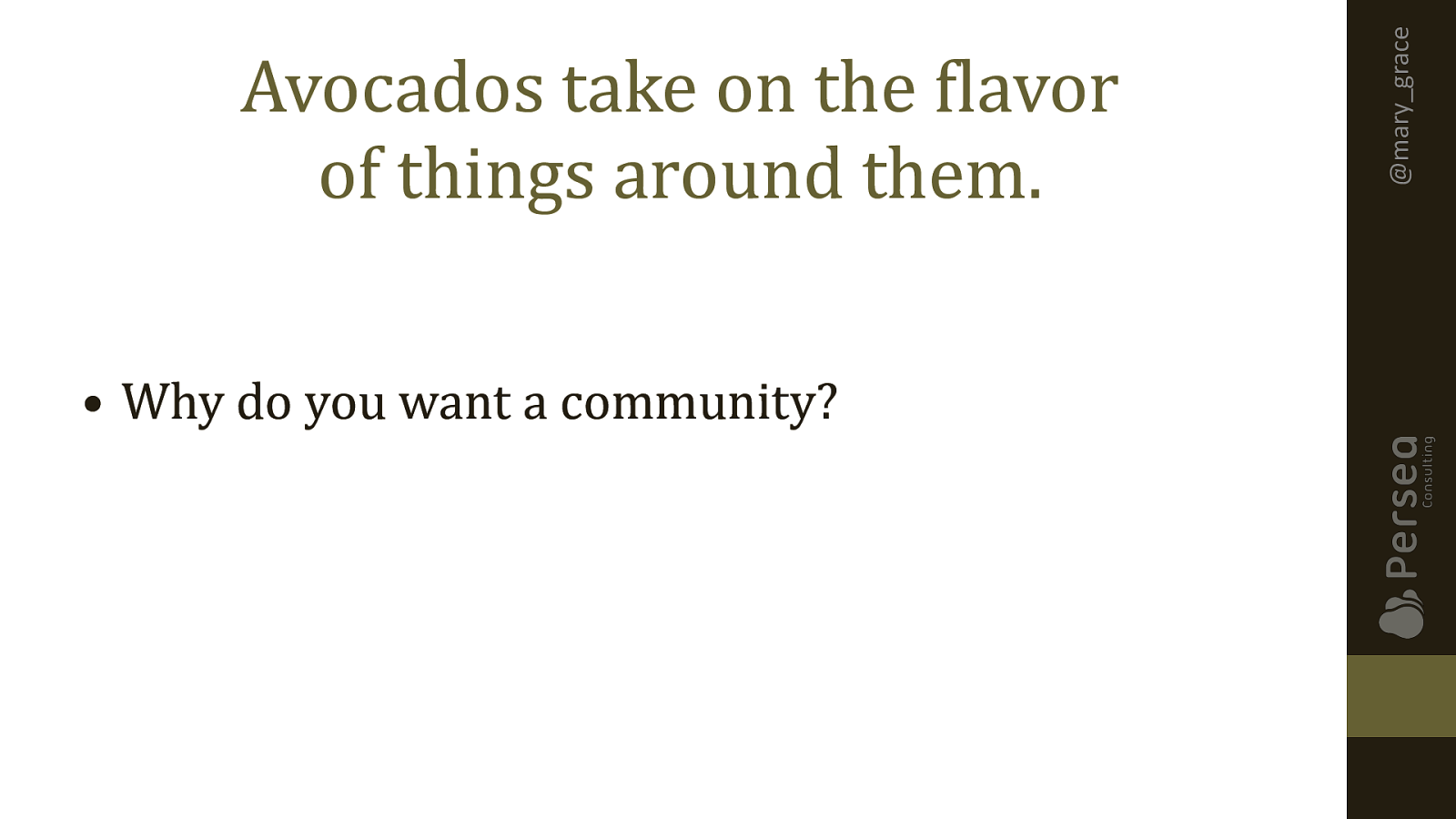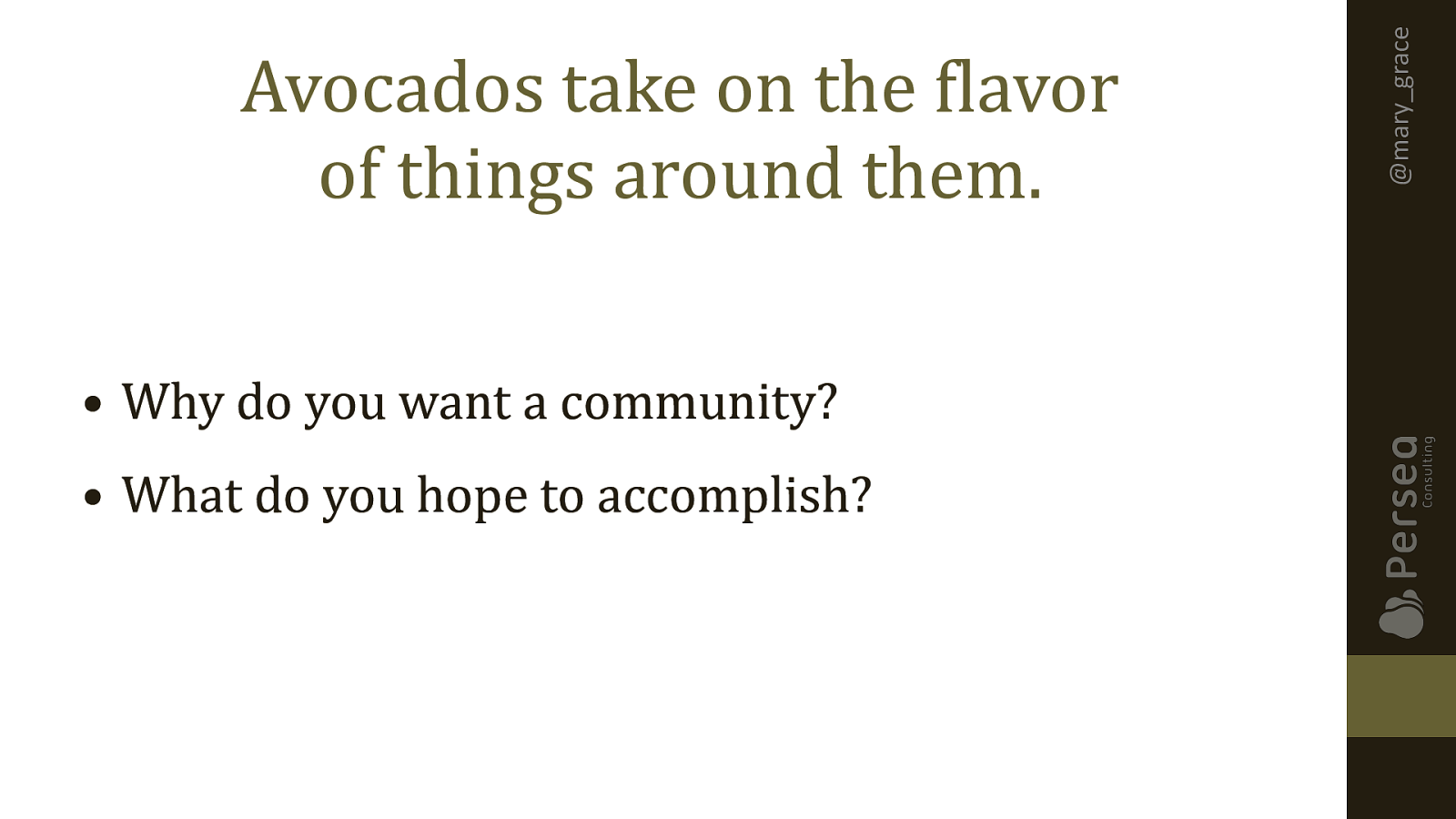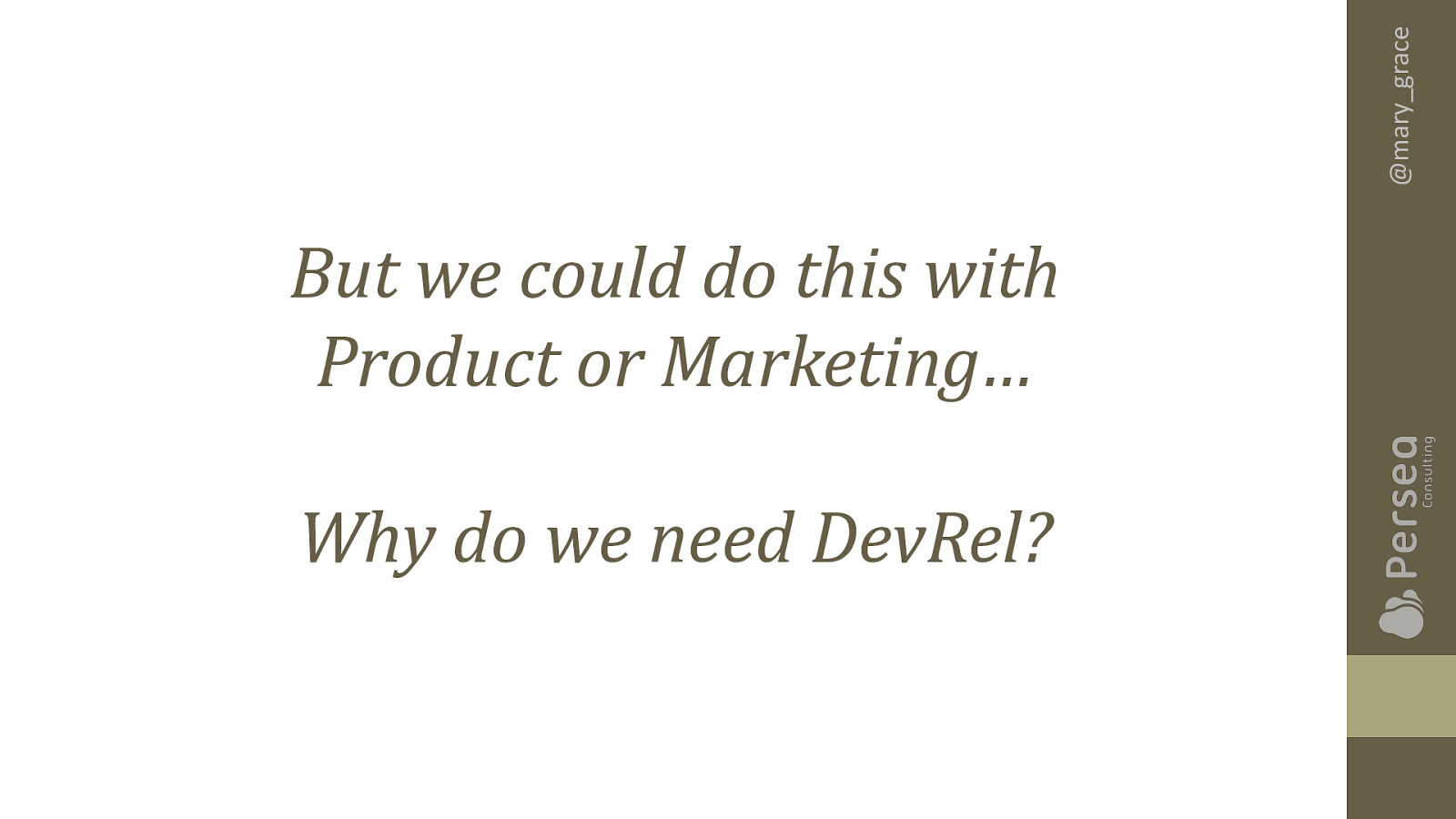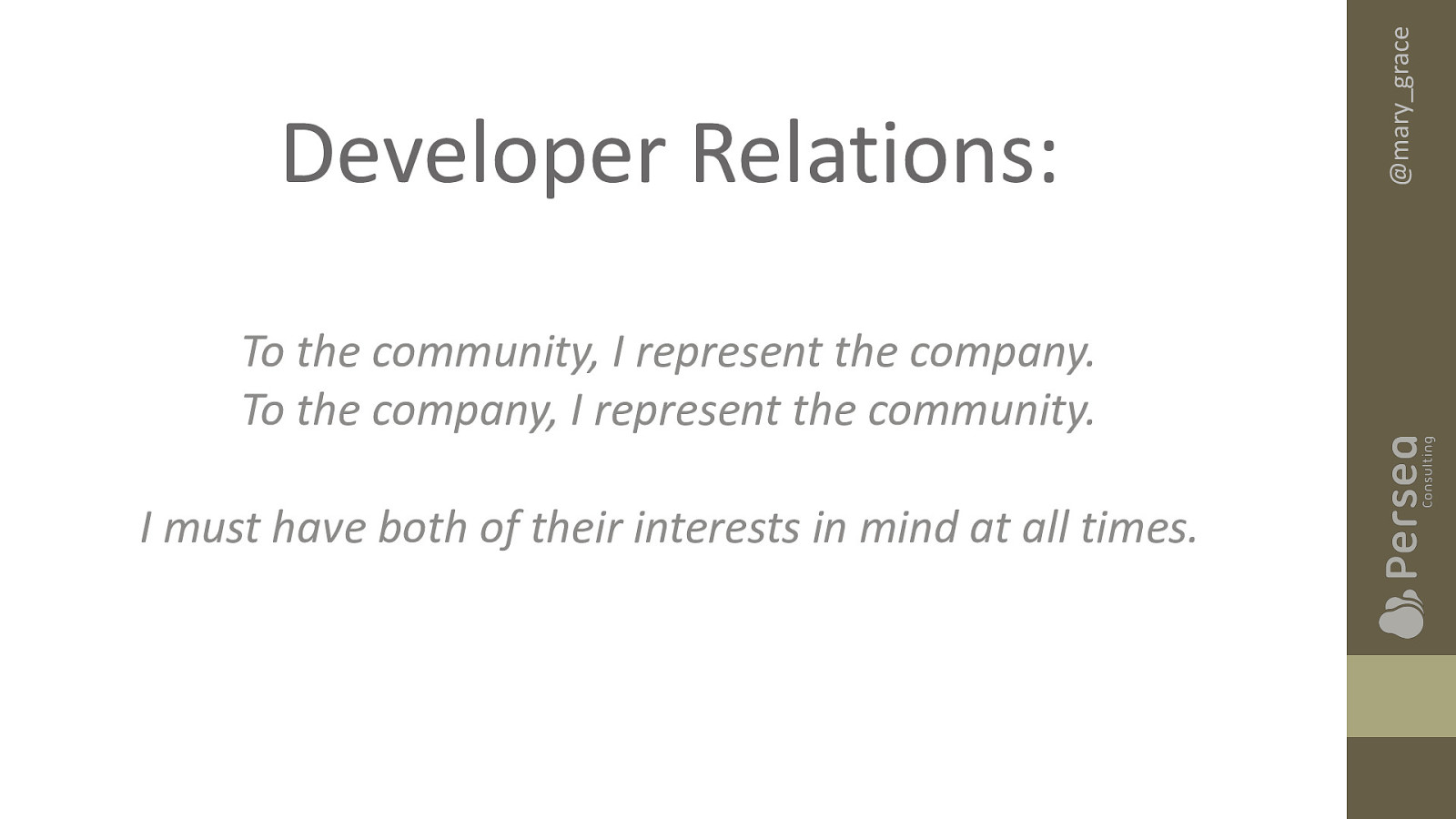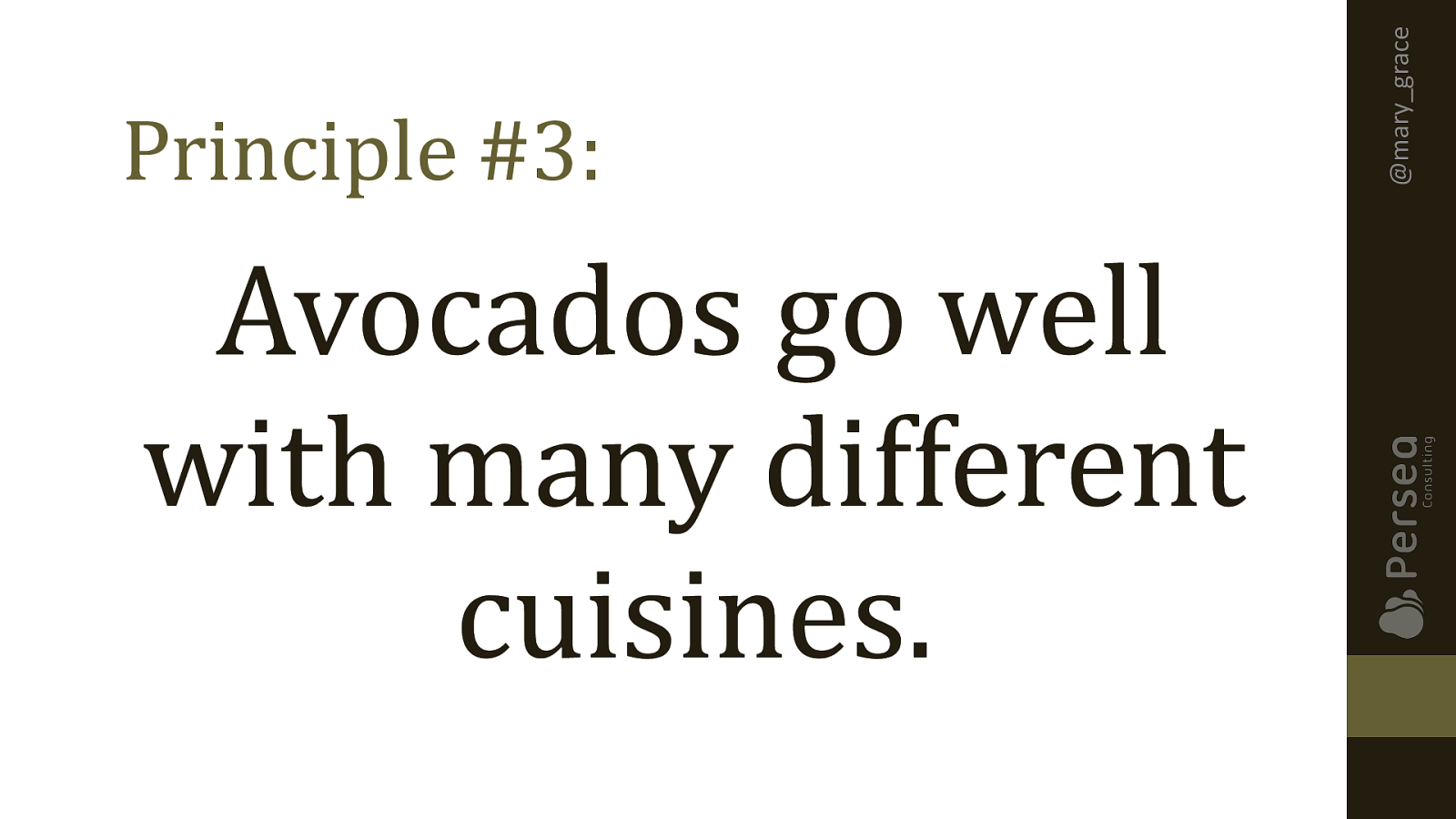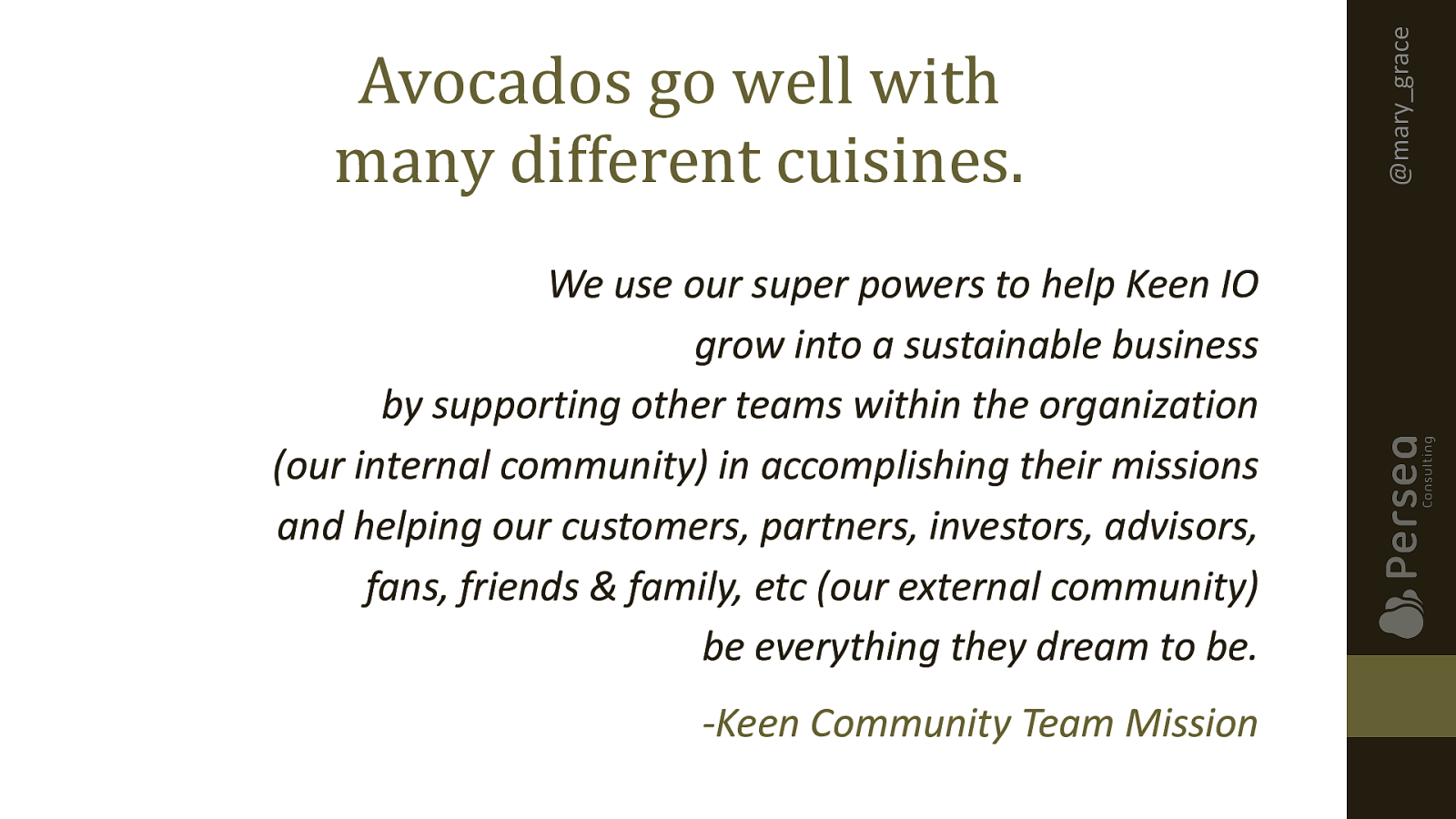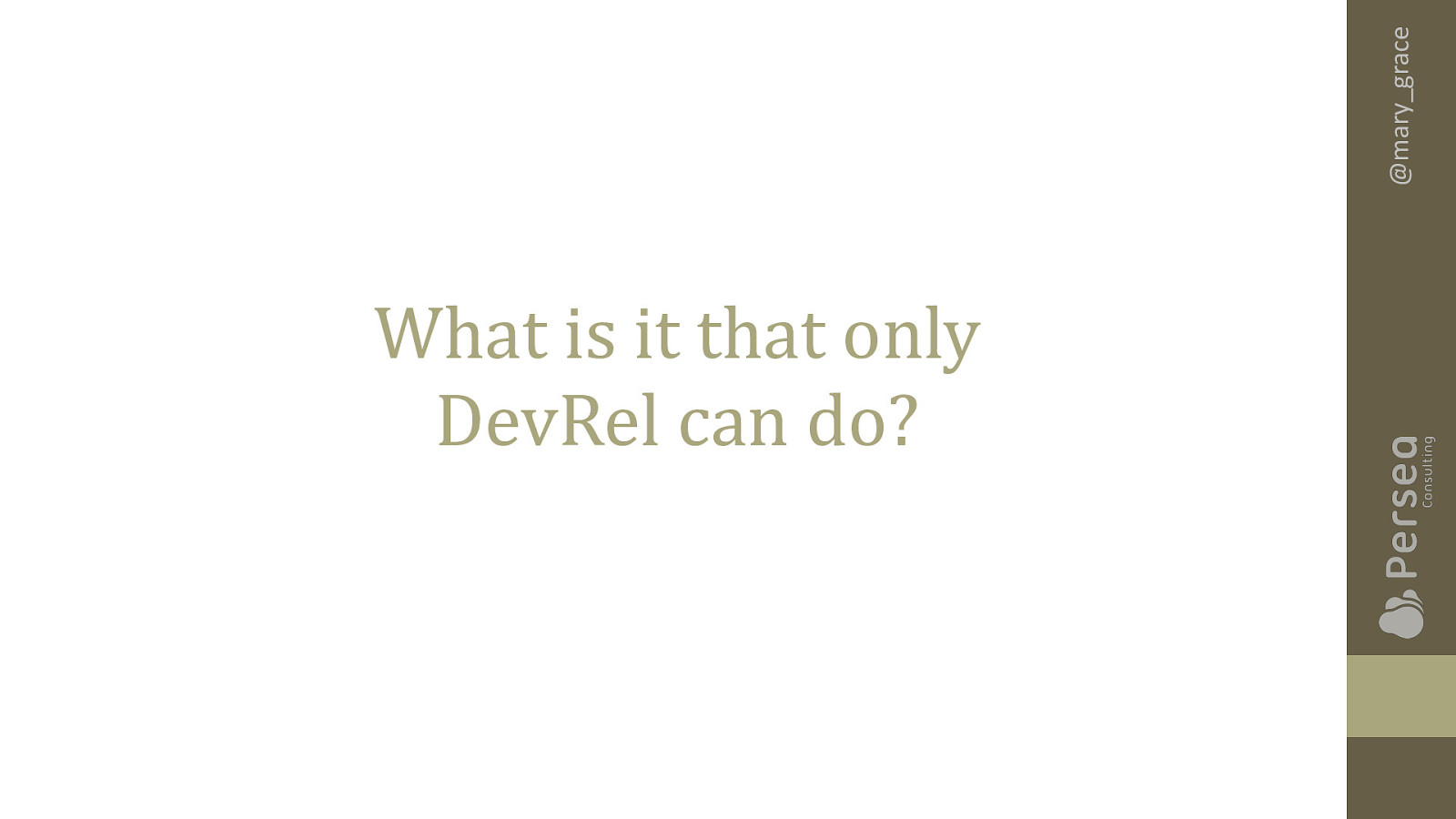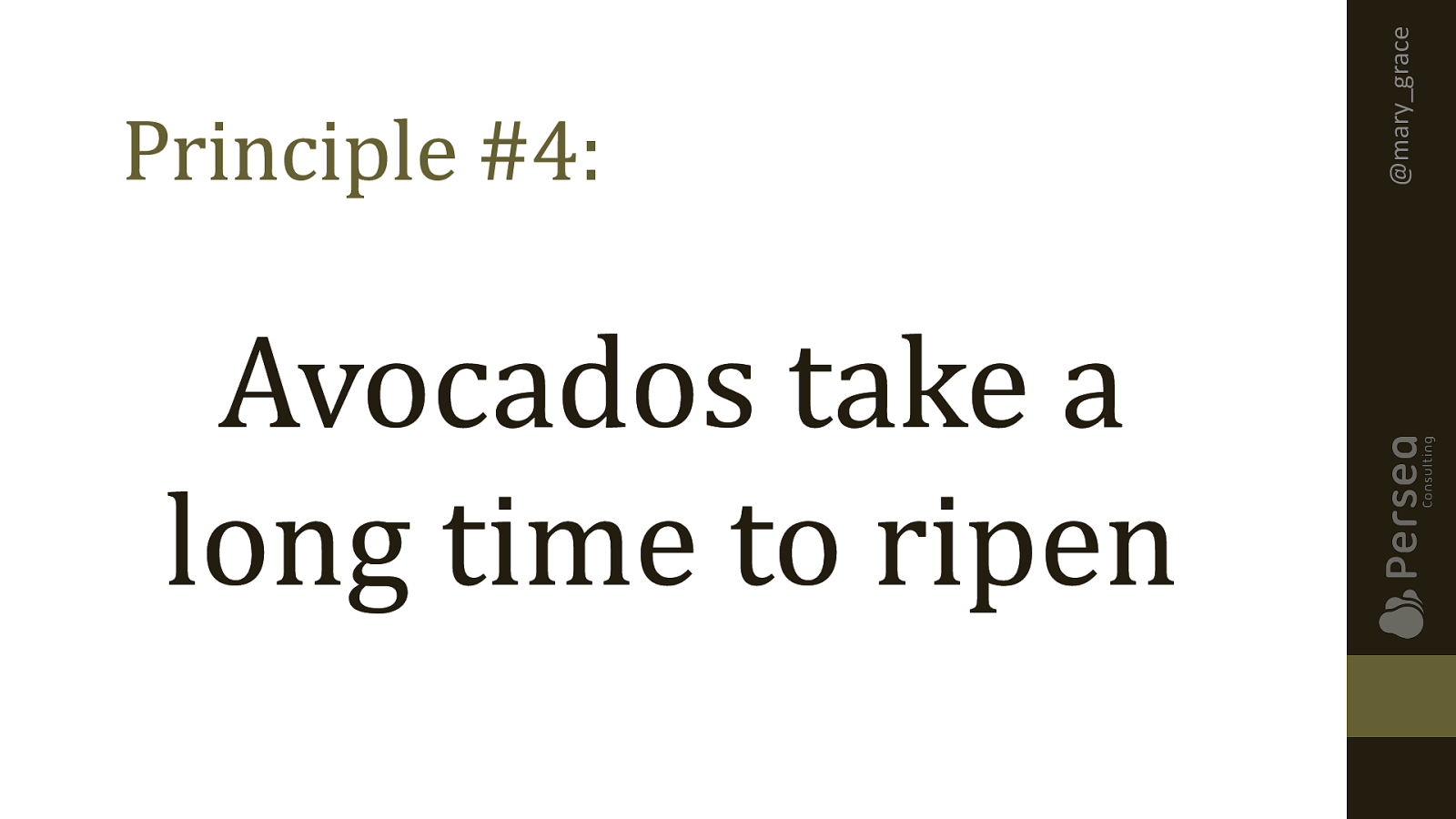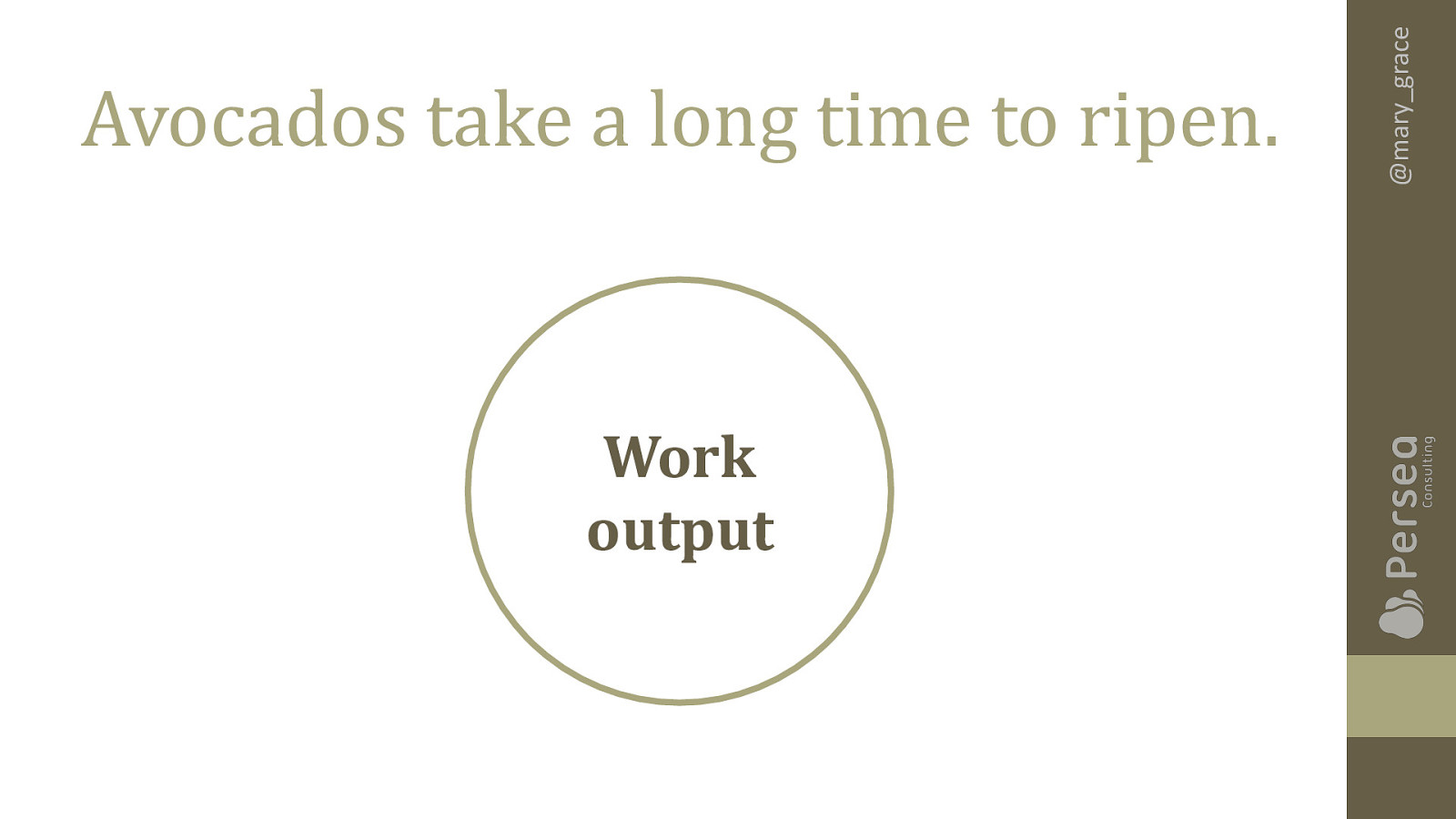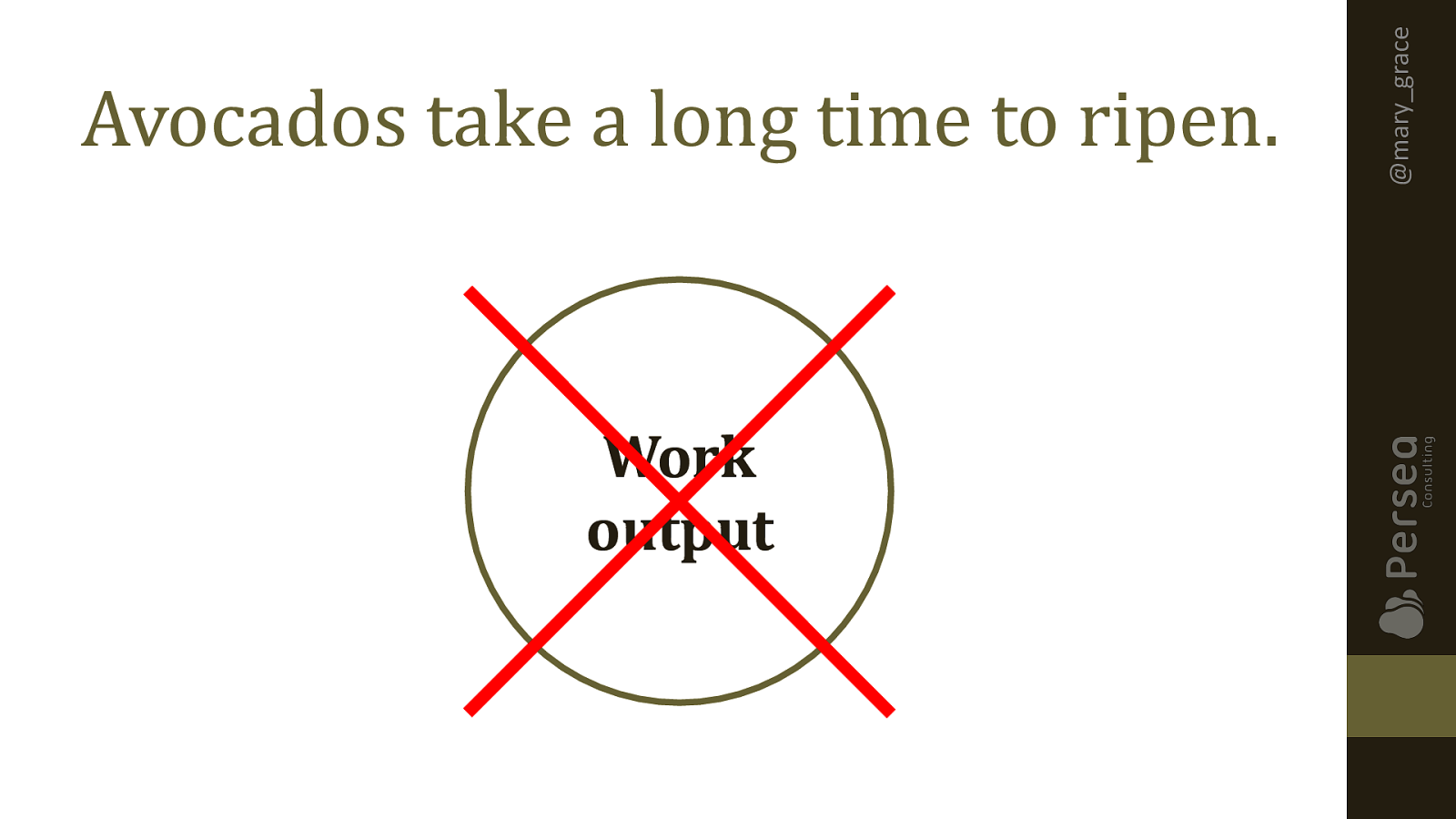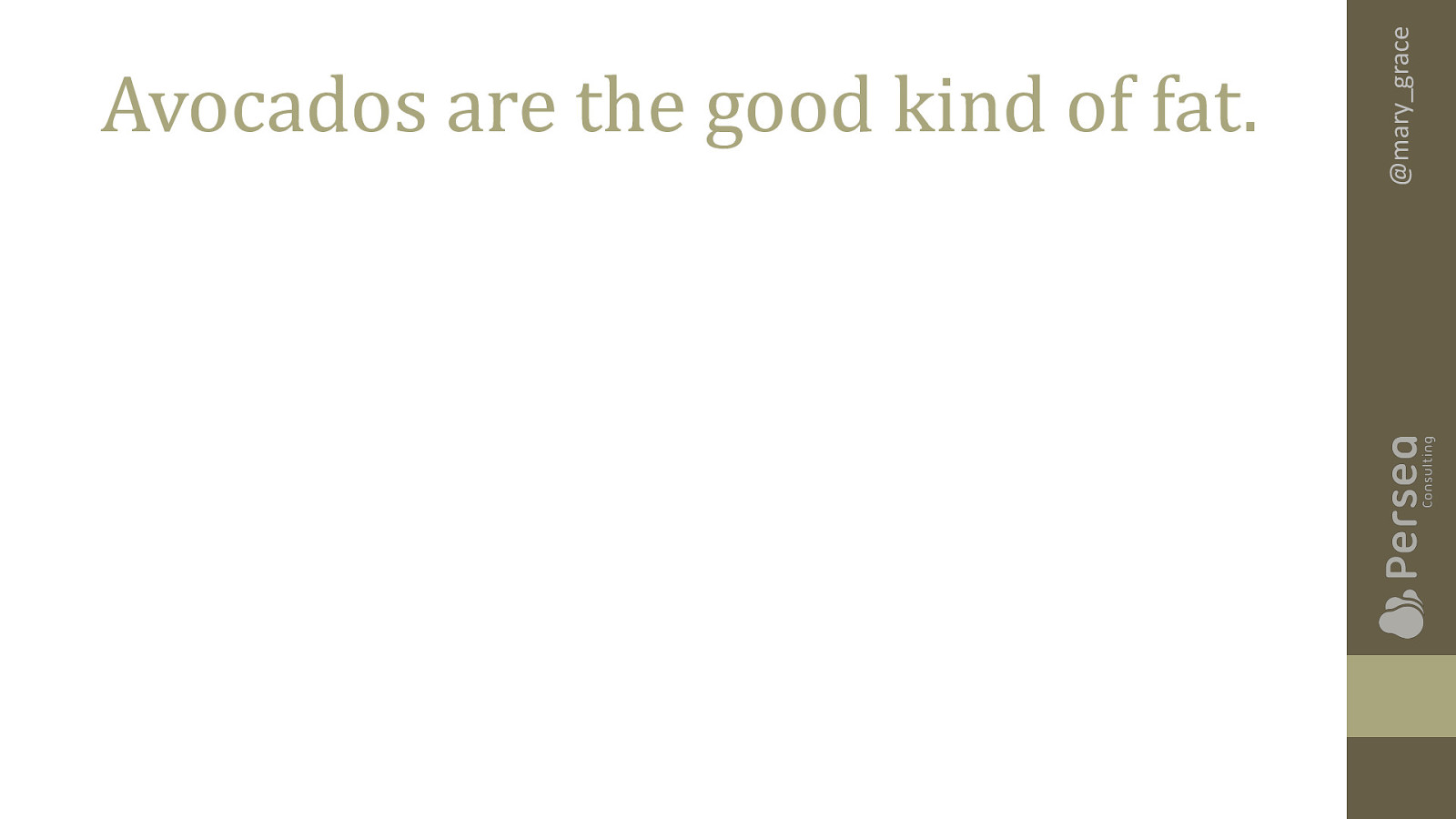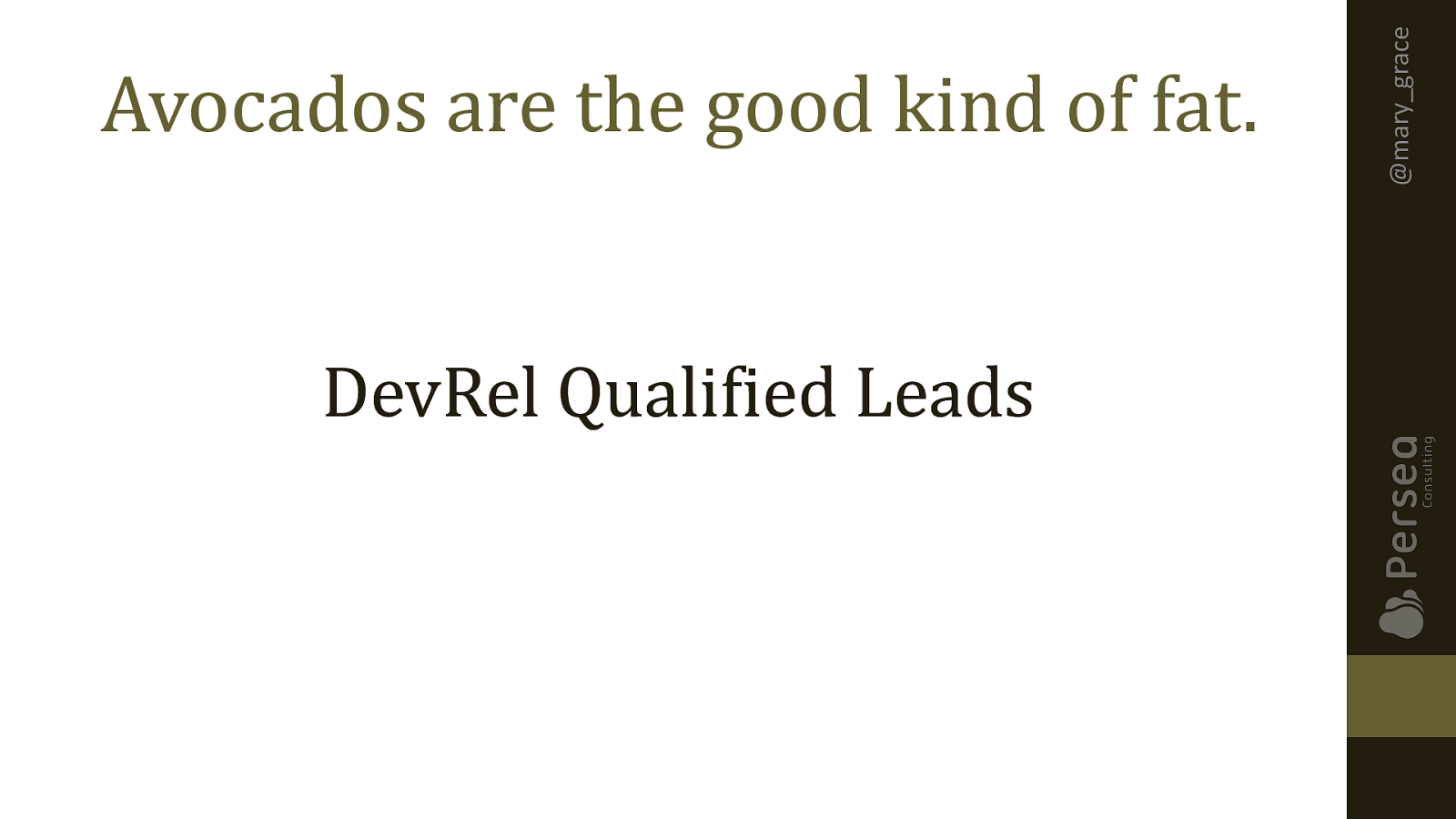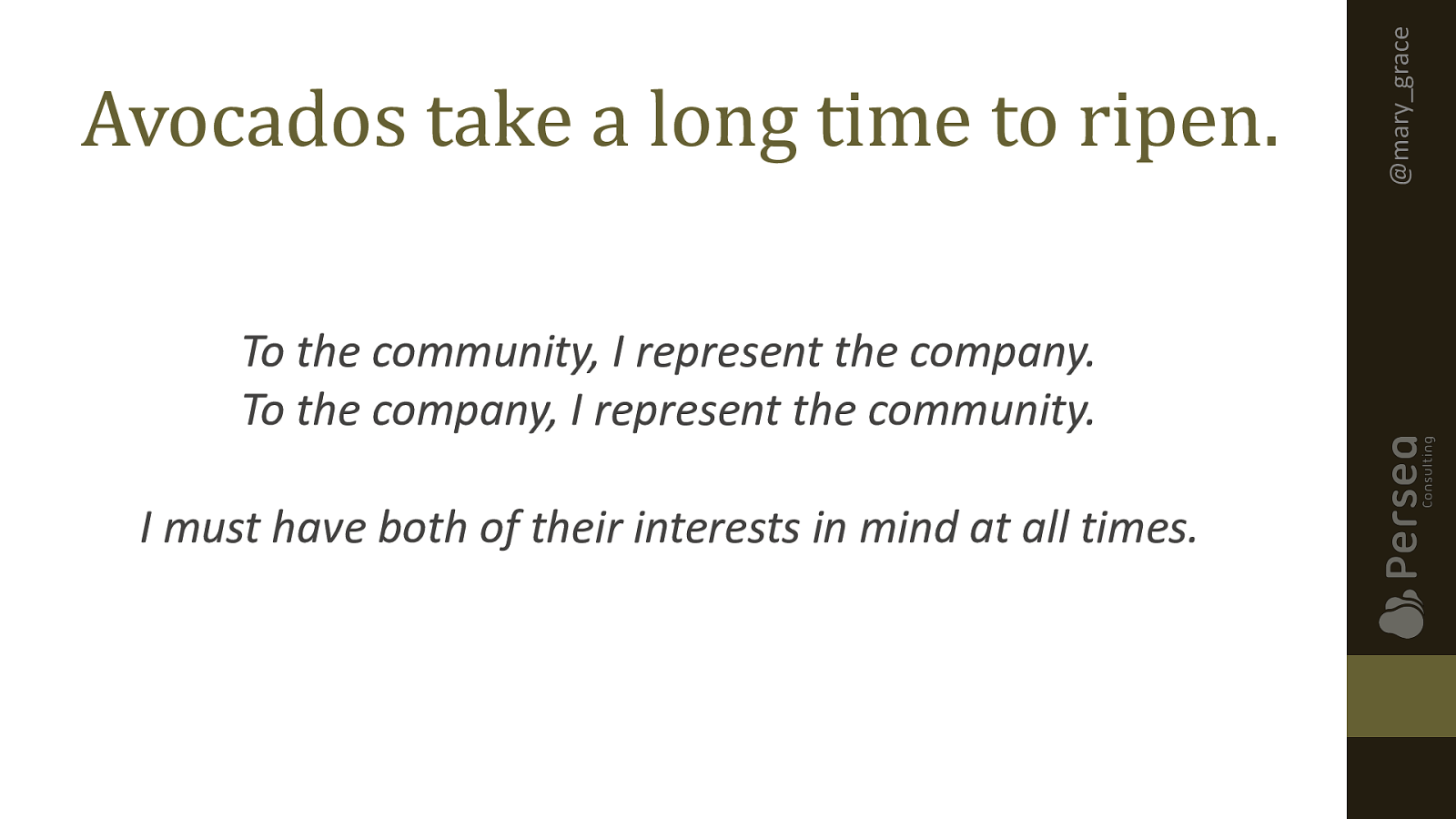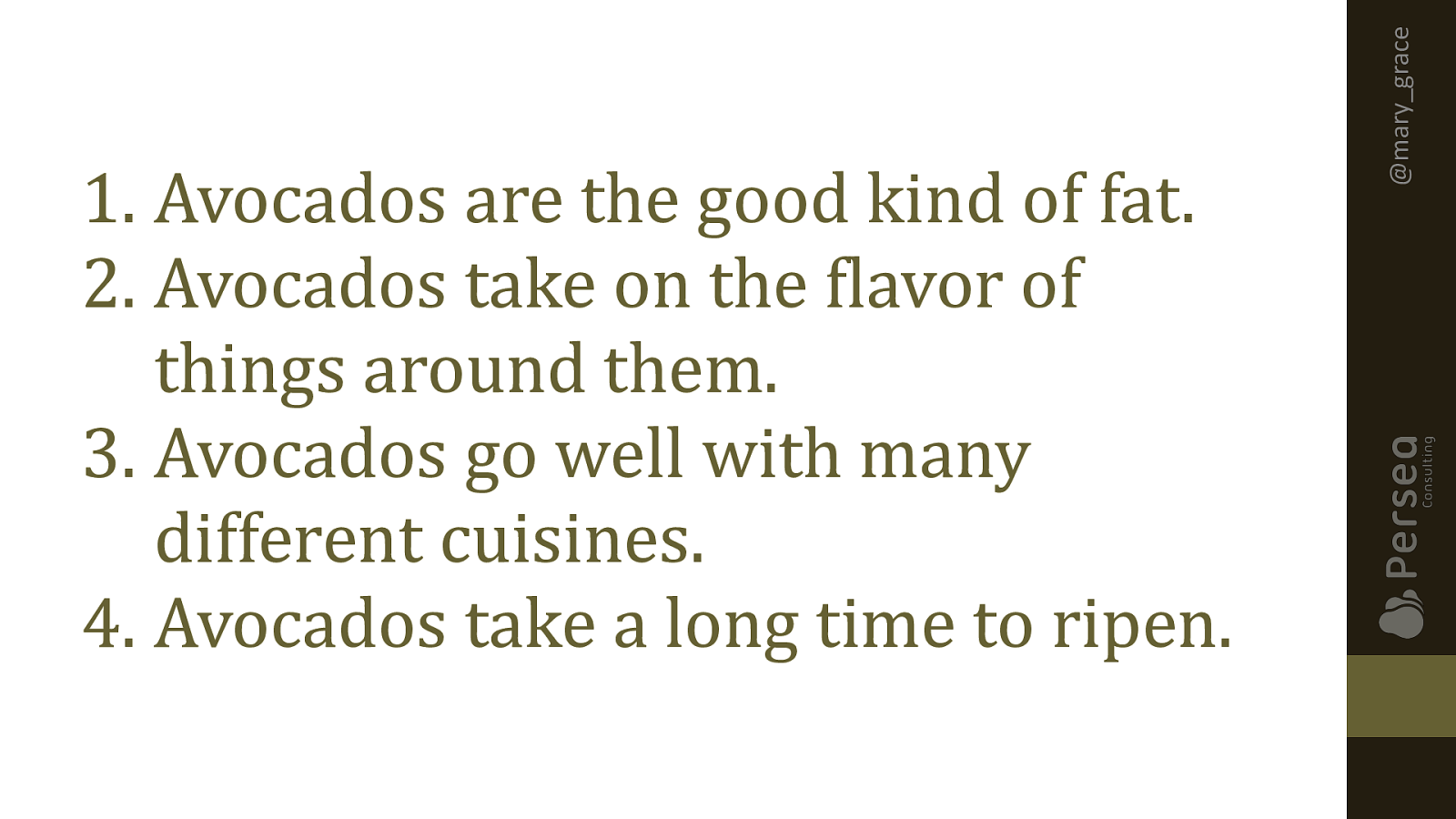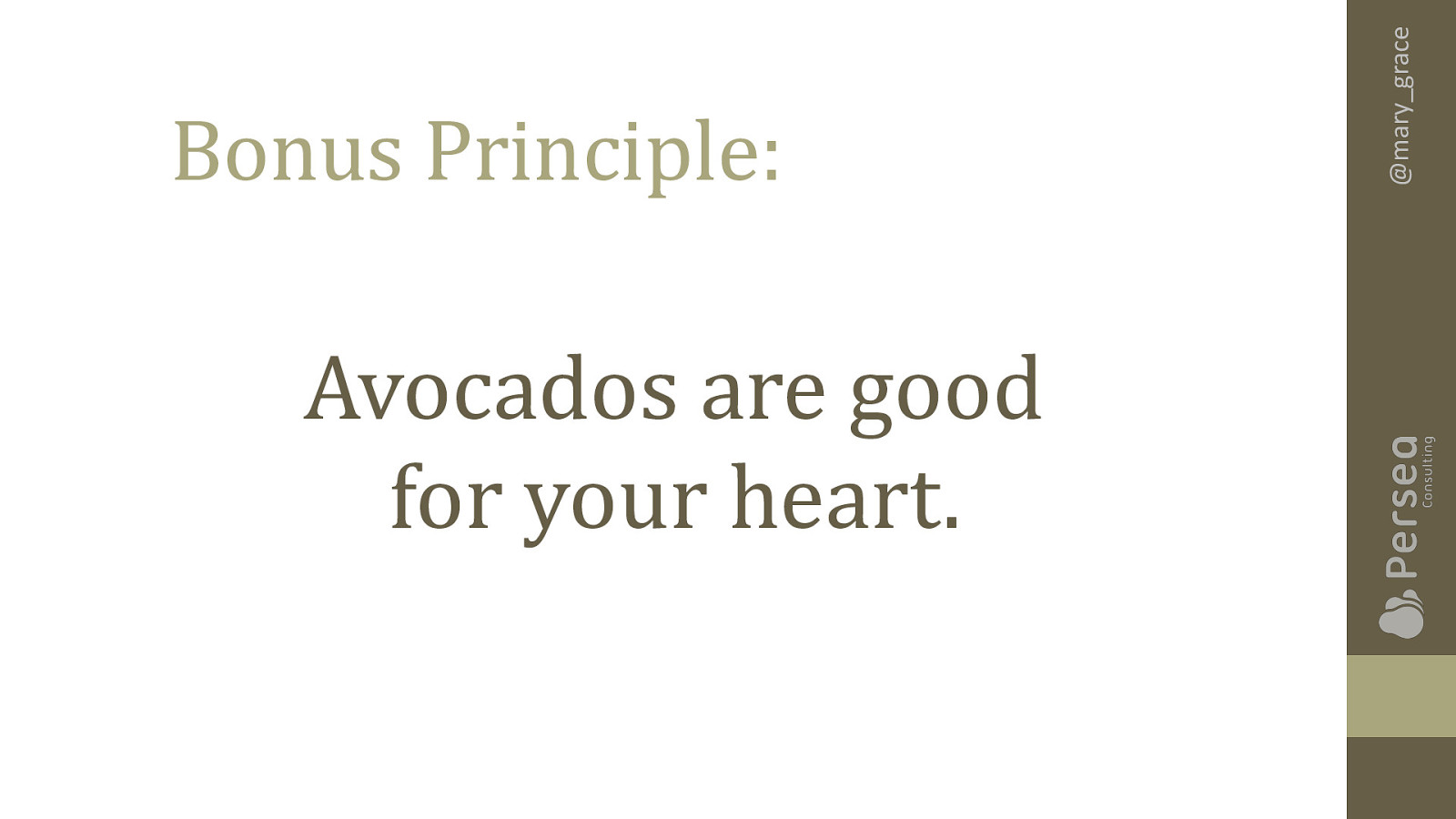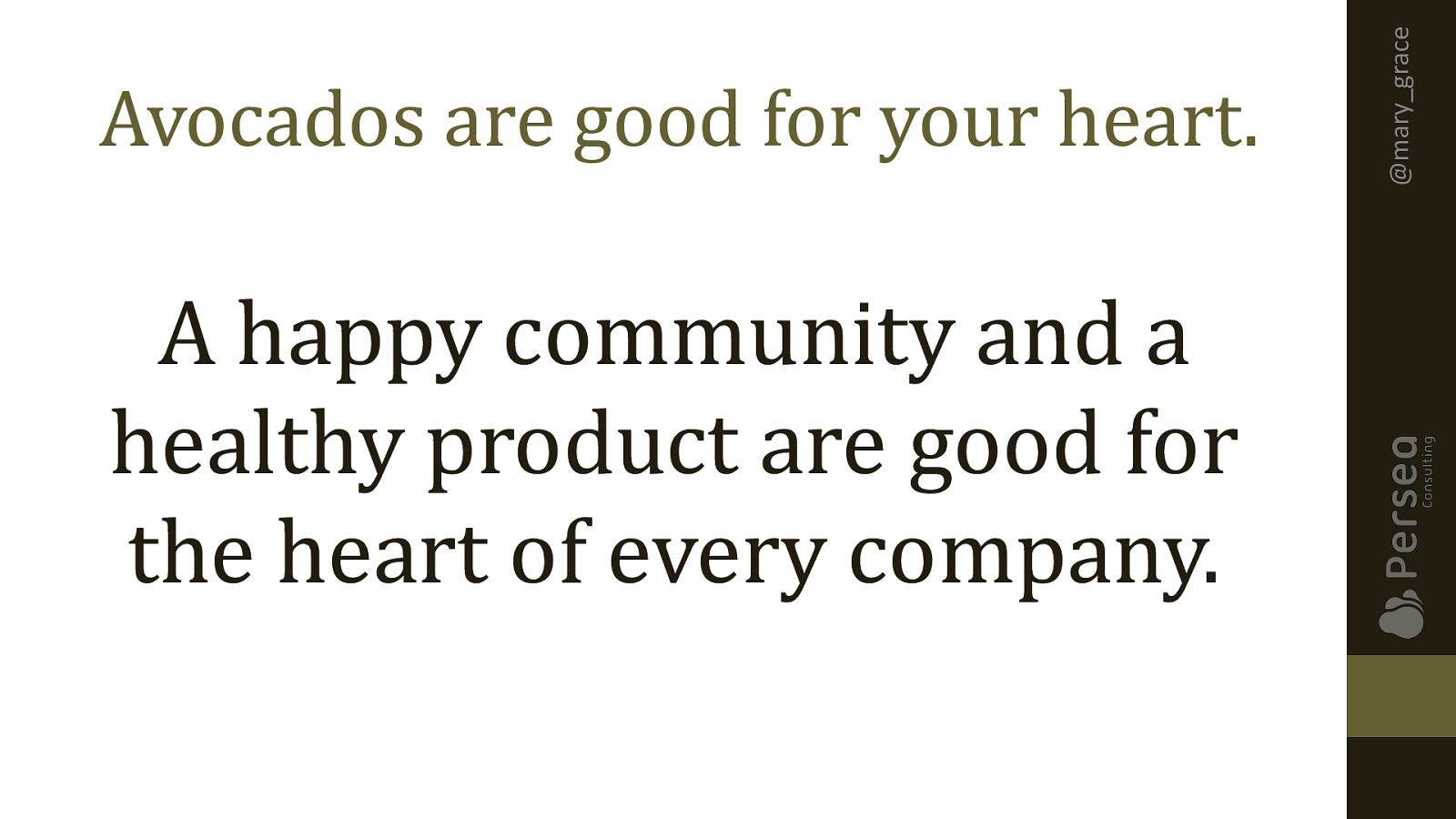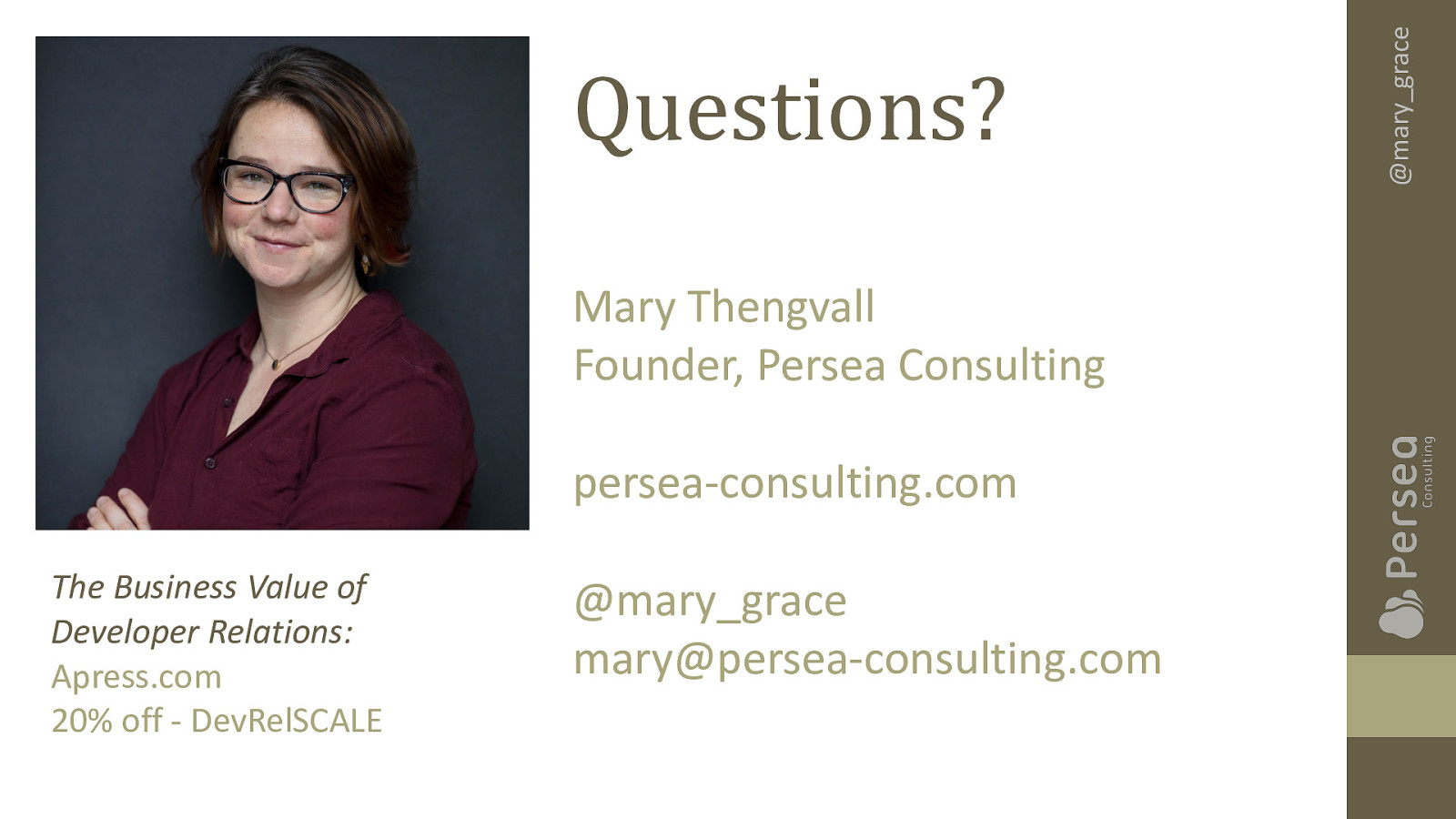@mary_grace
Avocados are the good kind of fat. Our job is to inspire and equip developers to build the next generation of amazing applications. This means understanding what they are trying to do, pointing them to tools and training, and generally helping them be successful. -Twilio’s Developer Evangelism Team Mission
Twilio’s Developer Evangelism team puts it this way: Our job is to inspire and equip developers to build the next generation of amazing applications. This means understanding what they are trying to do, pointing them to tools and training, and generally helping them be successful. Is this an inexpensive endeavor? No! But is it worthwhile? Signs point to yes! When Twilio was first founded, they were told they didn’t stand a chance with a developer-focused strategy, but they went on to land a 1 million dollar seed round from a group of angel investors including Chris Sacca and Mitch Kapor, and one VC. The first full-time employee that they hired, Danielle Morrill, built out what is now acknowledged as the startup world’s most effective developer marketing program and is now an investor and startup founder in her own right. Now, with customers like Dell, Twitter, Lyft, Salesforce, Hulu, Twitch, Intuit… the list goes on… they continue to cater to developers and build out what is now known as one of the top Developer Relations teams in the entire industry. Twilio has invested a significant amount of money into something that they were told would never make them successful, because they understood the true value of Developer Relations: if you can prove to developers unequivocally that you not only want, but will listen to and implement their feedback, you will gain their loyalty.
















